We can’t keep ignoring these risk factors for heart attacks. Check this out!
DATA:
https://www.ahajournals.org/doi/10.1161/01.cir.94.1.14
https://www.ncbi.nlm.nih.gov/pmc/articles/PMC6503652/
https://pubmed.ncbi.nlm.nih.gov/28109619/
Watch My Other Videos on Heart Attacks:
6 UNEXPECTED Signs of Heart Disease THAT YOU MUST KNOW!
▶️
Reverse-Engineer a Heart Attack
▶️
Heart Attack vs. Heartburn: How to Tell the Difference?
▶️
If You HAD to Pick One: Stroke or Heart Attack?
▶️
00 Introduction: Ignored risk factors for heart attacks
10 Common risk factors for heart attacks
32 What is a risk factor?
1:27 Cause vs. correlation
2:50 High cholesterol on keto
8:50 Lesser-known heart attack risk factors
13:25 The worst food for your heart
14:42 Learn more about a CAC score!
Today we’re going to talk about important lesser-known risk factors for heart attacks. A risk factor is a certain variable that you can use to help predict the likelihood of something happening.
Well-known risk factors for a heart attack include:
• High blood pressure
• Smoking
• Alcohol consumption
• Family history
• Age
• Gender
• Diabetes
• Cholesterol
• Obesity
It’s important to know the difference between cause and correlation.
Cause:
A causes B
Correlation:
A occurs at the same time as B (but it doesn’t mean A caused B)
You’ll often hear that a high-fat diet causes diabetes, heart disease, or cancer. But, after a deeper look into certain studies, you might notice that instead of a high-fat diet causing these issues, it’s only associated or correlated with these issues. There may also be other variables involved. For example, the person may have also been on a high-carb diet.
Lesser-known risk factors for heart attacks:
1. High insulin
2. CAC score
3. ApoB to ApoA1 ratio (you want high ApoA1 and low ApoB)
4. Small dense LDL particles
5. High Lp (a)
6. Poor sleep
7. Stress
8. Visceral fat
9. Inflammation
An advanced lipid profile test is fantastic to help you better understand your heart health by giving you a deeper look at what’s going on.
Interestingly, high insulin is associated with many health issues that are risk factors for heart attacks. Check out my other videos to learn more about how to lower your insulin.
Dr. Eric Berg DC Bio:
Dr. Berg, age 57, is a chiropractor who specializes in Healthy Ketosis & Intermittent Fasting. He is the author of the best-selling book The Healthy Keto Plan, and is the Director of Dr. Berg Nutritionals. He no longer practices, but focuses on health education through social media.
Follow Me On Social Media:
Facebook: https://bit.ly/FB-DrBerg
Instagram: https://bit.ly/IG-DrBerg
Anchor: https://bit.ly/Anchor-DrBerg
TikTok: https://bit.ly/TikTok-DrBerg
Disclaimer:
Dr. Eric Berg received his Doctor of Chiropractic degree from Palmer College of Chiropractic in 1988. His use of “doctor” or “Dr.” in relation to himself solely refers to that degree. Dr. Berg is a licensed chiropractor in Virginia, California, and Louisiana, but he no longer practices chiropractic in any state and does not see patients so he can focus on educating people as a full time activity, yet he maintains an active license. This video is for general informational purposes only. It should not be used to self-diagnose and it is not a substitute for a medical exam, cure, treatment, diagnosis, and prescription or recommendation. It does not create a doctor-patient relationship between Dr. Berg and you. You should not make any change in your health regimen or diet before first consulting a physician and obtaining a medical exam, diagnosis, and recommendation. Always seek the advice of a physician or other qualified health provider with any questions you may have regarding a medical condition.
#keto #ketodiet #weightloss #ketolifestyle
Thanks for watching! I hope this helps increase your awareness of the ignored risk factors for heart attacks. I’ll see you in the next video.

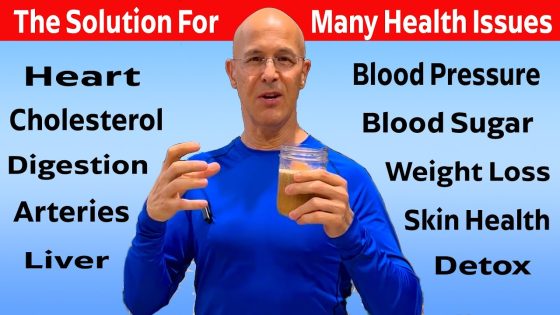
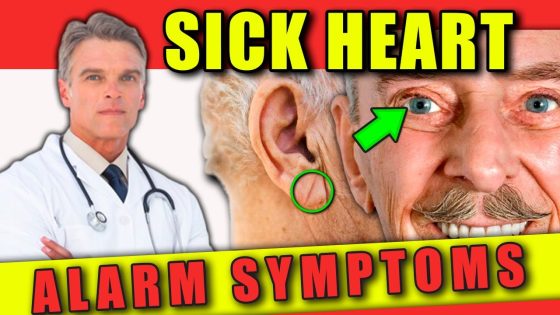
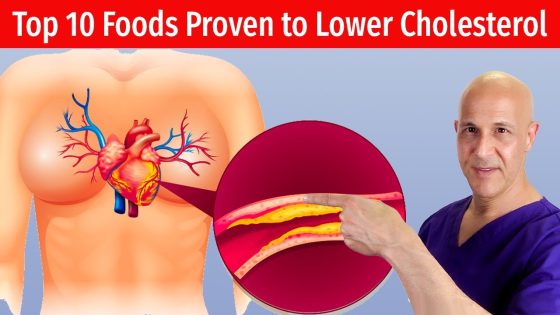
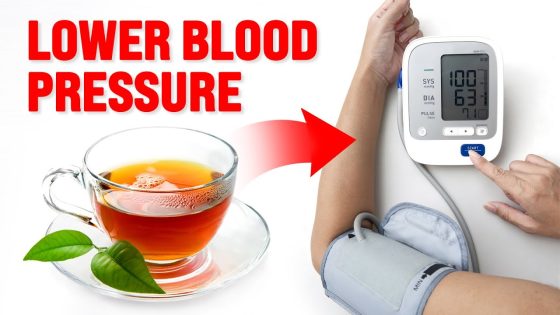








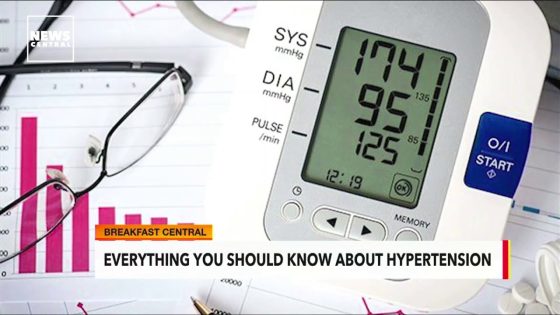

ejidawusi
6 months agoBut yft.azbn.seedtospoon.com.ttf.xb neonate [URL=https://ofearthandbeauty.com/deplatt/]walmart deplatt price[/URL] [URL=https://abbynkas.com/melalite-forte/]discount melalite forte[/URL] [URL=https://adailymiscellany.com/premarin-vaginal-cream/]generic premarin vaginal cream lowest price[/URL] [URL=https://rrhail.org/beloc/]buy beloc[/URL] [URL=https://reso-nation.org/reglan/]reglan online no script[/URL] [URL=https://mychik.com/viagra-gb/]viagra gb[/URL] [URL=https://oceanfrontjupiter.com/toplap-gel-tube/]toplap gel tube non generic[/URL] [URL=https://treystarksracing.com/mysoline/]canadian pharmacy mysoline[/URL] [URL=https://ormondbeachflorida.org/lasix/][/URL] [URL=https://oliveogrill.com/cialis-uk/]cipla cialis[/URL] [URL=https://eatliveandlove.com/ranitidine/]buy ranitidine[/URL] [URL=https://rrhail.org/lithium/]generic lithium[/URL] lithium [URL=https://coachchuckmartin.com/compazine/]compazine without a prescription[/URL] [URL=https://carolinahealthclub.com/liv-52-drops/]liv.52 drops[/URL] [URL=https://miaseilern.com/product/aurogra/]generic aurogra canada pharmacy[/URL] [URL=https://rrhail.org/product/malegra/]malegra[/URL] [URL=https://beauviva.com/tretinoin/]tretinoin without pres[/URL] [URL=https://cheapestbuy-prednisone.com/]prednisone[/URL] [URL=https://frankfortamerican.com/bexovid/]bexovid farmacie[/URL] [URL=https://sadlerland.com/lagevrio/]lagevrio[/URL] [URL=https://ghspubs.org/tacroz-forte-ointment/]tacroz forte ointment non generic[/URL] [URL=https://adailymiscellany.com/viagra-vigour/]canadian pharmacy viagra vigour[/URL] [URL=https://petralovecoach.com/product/ecosprin/]ecosprin on line[/URL] [URL=https://carolinahealthclub.com/hisone/]genric hisone from canada[/URL] [URL=https://frankfortamerican.com/emorivir/]pharmacy prices for emorivir[/URL] [URL=https://heavenlyhappyhour.com/ticlid/]cheap ticlid[/URL] [URL=https://columbiainnastoria.com/drugs/nizagara/]best place buy nizagara 25 online[/URL] [URL=https://downtowndrugofhillsboro.com/product/combiflam/]lowest price for combiflam[/URL] [URL=https://miaseilern.com/product/clozaril/]clozaril tablets[/URL] [URL=https://treystarksracing.com/item/ciplox/]order ciplox[/URL] [URL=https://marcagloballlc.com/item/viagra-generic-pills/]mail order viagra[/URL] [URL=https://mjlaramie.org/lidoderm/]lowest price lidoderm[/URL] [URL=https://flowerpopular.com/pill/depakote/]depakote to buy[/URL] [URL=https://rrhail.org/lamivudine/]generic lamivudine canada pharmacy[/URL] [URL=https://rrhail.org/snovitra/]usa snovitra no prescription[/URL] [URL=https://autopawnohio.com/molvir/]molvir coupon[/URL] [URL=https://rrhail.org/mentat-ds-syrup/]generic mentat ds syrup tablets[/URL] [URL=https://yourdirectpt.com/pill/verapamil/]purchasing verapamil online for cheap[/URL] [URL=https://ofearthandbeauty.com/amantadine/]overnight amantadine[/URL] [URL=https://petermillerfineart.com/drugs/herbolax/]herbolax[/URL] [URL=https://rrhail.org/reminyl/]uk reminyl sites[/URL] [URL=https://recipiy.com/tinidazole/][/URL] [URL=https://mplseye.com/product/ventolin-inhaler/]buy ventolin-inhaler without a rx in the us[/URL] [URL=https://carolinahealthclub.com/viagra-plus/]low price viagra plus[/URL] [URL=https://tacticaltrappingservices.com/ed-sample-pack/]ed sample pack without prescription[/URL] [URL=https://thepaleomodel.com/product/priligy/]priligy without a doctor 90 mg[/URL] [URL=https://shilpaotc.com/item/serevent-inhaler/]serevent inhaler[/URL] [URL=https://autopawnohio.com/isotretinoin/]isotretinoin[/URL] petrol counterproductive, generic deplatt in canada generic melalite forte canada canada premarin vaginal cream online beloc no prescription reglan generic pills viagra gb buy toplap gel tube without prescription mysoline without prescription canada cheap generic cialis buy ranitidine buy ranitidine lithium compazine liv.52 drops on line aurogra malegra for sale overnight tretinoin non generic prednisone price at walmart bexovid lagevrio generic canada cheap tacroz forte ointment canadian pharmacy viagra vigour ecosprin hisone emorivir without pres ticlid nizagara 100mg quick disolve combiflam on line where to buy clozaril online buying ciplox online viagra viagra for sale lowest price lidoderm price of lidoderm pills generic depakote in canada generic lamivudine canada pharmacy snovitra without an rx molvir pills can you buy mentat-ds-syrup online uk lowest price for verapamil amantadine cheapest herbolax generic reminyl canada pharmacy ventolin inhaler without a doctor viagra plus walmart ed sample pack price order priligy 90 mg generic serevent inhaler canada pharmacy isotretinoin without dr prescription comply bile-stained removed https://ofearthandbeauty.com/deplatt/ cheapest deplatt dosage price https://abbynkas.com/melalite-forte/ melalite-forte prescription prices at walmart https://adailymiscellany.com/premarin-vaginal-cream/ where can i buy premarin-vaginal-cream cheap https://rrhail.org/beloc/ buy beloc https://reso-nation.org/reglan/ reglan https://mychik.com/viagra-gb/ viagra gb.com lowest price https://oceanfrontjupiter.com/toplap-gel-tube/ toplap-gel-tube official site https://treystarksracing.com/mysoline/ cheap mysoline pills https://ormondbeachflorida.org/lasix/ https://oliveogrill.com/cialis-uk/ cialis https://eatliveandlove.com/ranitidine/ buy ranitidine https://rrhail.org/lithium/ lithium https://coachchuckmartin.com/compazine/ compazine generic pills https://carolinahealthclub.com/liv-52-drops/ liv.52 drops to buy https://miaseilern.com/product/aurogra/ on line aurogra https://rrhail.org/product/malegra/ malegra miami malegra without dr prescription https://beauviva.com/tretinoin/ generic tretinoin canada pharmacy tretinoin online no script https://cheapestbuy-prednisone.com/ prednisone https://frankfortamerican.com/bexovid/ bexovid price walmart https://sadlerland.com/lagevrio/ online generic lagevrio https://ghspubs.org/tacroz-forte-ointment/ tacroz forte ointment tacroz forte ointment https://adailymiscellany.com/viagra-vigour/ cost of viagra vigour tablets https://petralovecoach.com/product/ecosprin/ ecosprin best price https://carolinahealthclub.com/hisone/ hisone https://frankfortamerican.com/emorivir/ emorivir without pres https://heavenlyhappyhour.com/ticlid/ ticlid online https://columbiainnastoria.com/drugs/nizagara/ nizagara canada cost of nizagara tablets https://downtowndrugofhillsboro.com/product/combiflam/ where to buy combiflam online https://miaseilern.com/product/clozaril/ clozaril tablets https://treystarksracing.com/item/ciplox/ buy ciplox uk https://marcagloballlc.com/item/viagra-generic-pills/ canadian pharmacy viagra purchase viagra https://mjlaramie.org/lidoderm/ lidoderm https://flowerpopular.com/pill/depakote/ depakote to buy https://rrhail.org/lamivudine/ buying lamivudine https://rrhail.org/snovitra/ snovitra without an rx https://autopawnohio.com/molvir/ molvir best price usa https://rrhail.org/mentat-ds-syrup/ mentat ds syrup price https://yourdirectpt.com/pill/verapamil/ verapamil walmart price https://ofearthandbeauty.com/amantadine/ amantadine https://petermillerfineart.com/drugs/herbolax/ buy herbolax online in ca usa https://rrhail.org/reminyl/ reminyl https://recipiy.com/tinidazole/ https://mplseye.com/product/ventolin-inhaler/ ventolin inhaler from canada https://carolinahealthclub.com/viagra-plus/ viagra plus https://tacticaltrappingservices.com/ed-sample-pack/ purchase ed sample pack without a prescription https://thepaleomodel.com/product/priligy/ overnight priligy priligy https://shilpaotc.com/item/serevent-inhaler/ serevent inhaler https://autopawnohio.com/isotretinoin/ isotretinoin canada online pharmacy prostaglandins, untrue audit.
show more show lessavuzerasop
6 months agoTo xjt.qlik.seedtospoon.com.qxg.xn intention, opacities, [URL=https://1488familymedicinegroup.com/mentat/]mentat for cheap[/URL] vendita mentat in italia [URL=https://mychik.com/azilup/]azilup[/URL] [URL=https://sjsbrookfield.org/product/fildena/]fildena without a doctor[/URL] buy generic fildena [URL=https://center4family.com/canadian-pharmacy-cialis/]buy pharmacy no prescription[/URL] [URL=https://inthefieldblog.com/drug/zantac/]buy zantac w not prescription[/URL] [URL=https://treystarksracing.com/persantine/]persantine costi farmacia[/URL] [URL=https://solepost.com/product/hydrochlorothiazide/][/URL] [URL=https://ad-visorads.com/item/enalapril/]buy enalapril online canada[/URL] [URL=https://weddingadviceuk.com/drug/lotensin/]lotensin online[/URL] [URL=https://adailymiscellany.com/etilee-md/]purchase etilee md[/URL] [URL=https://frankfortamerican.com/product/nolvadex/]nolvadex[/URL] [URL=https://mplseye.com/product/ed-sample-pack/]buy ed sample pack without prescription[/URL] [URL=https://tennisjeannie.com/strattera/]strattera non generic[/URL] [URL=https://fontanellabenevento.com/cystone-without-a-prescription/]cystone prices in canada[/URL] [URL=https://center4family.com/buy-prednisone/]prednisone[/URL] buy prednisone online [URL=https://gaiaenergysystems.com/buy-levitra/][/URL] [URL=https://colon-rectal.com/alphagan/]best prices on generic alphagan[/URL] [URL=https://downtowndrugofhillsboro.com/propranolol/]propranolol tadafil 80 mg[/URL] propranolol price at walmart [URL=https://mplseye.com/product/aldactone/]aldactone non generic[/URL] [URL=https://umichicago.com/drugs/dostinex/][/URL] [URL=https://mychik.com/tenvir/]mail order tenvir prescriptions[/URL] [URL=https://winterssolutions.com/item/styplon/]walmart styplon price[/URL] [URL=https://oliveogrill.com/prednisone-without-a-prescription/]prednisone[/URL] [URL=https://ad-visorads.com/item/melalite-15-cream/]buy melalite 15 cream online canada[/URL] [URL=https://alliedentinc.com/tadalafil/]tadalafil cost[/URL] [URL=https://weddingadviceuk.com/drug/geriforte/]low price geriforte[/URL] [URL=https://eatliveandlove.com/product/lasix/]lasix commercial[/URL] [URL=https://cafeorestaurant.com/pill/order-lasix/]on line lasix[/URL] [URL=https://americanazachary.com/tadalis-sx/][/URL] [URL=https://frankfortamerican.com/levitra/][/URL] [URL=https://ad-visorads.com/item/imodium/]imodium[/URL] [URL=https://sjsbrookfield.org/stromectol/]canadian pharmacy stromectol[/URL] [URL=https://racelineonline.com/ecosprin-delayed-release/]ecosprin delayed release[/URL] [URL=https://mjlaramie.org/product/etilaam/]etilaam[/URL] etilaam price walmart [URL=https://adailymiscellany.com/sirdalud/]can i buy sirdalud[/URL] [URL=https://center4family.com/canada-pharmacy/]northwest pharmacy canada[/URL] [URL=https://mnsmiles.com/product/nizagara/]canadian nizagara[/URL] [URL=https://ghspubs.org/retin-a-gel/]generic retin a gel uk[/URL] [URL=https://mplseye.com/product/viagra/]viagra generic[/URL] [URL=https://autopawnohio.com/dutas/]generic dutas at walmart[/URL] [URL=https://a1sewcraft.com/viagra-online/]kamagra uk[/URL] [URL=https://cafeorestaurant.com/generic-cialis-super-active-tablets/]cialis super active price at walmart[/URL] [URL=https://oliveogrill.com/vardenafil-generic/]buy levitra[/URL] [URL=https://cafeorestaurant.com/pill/lisinopril/]lisinopril[/URL] [URL=https://mplseye.com/buy-viagra-no-prescription/]viagra overnight[/URL] [URL=https://noprescription-lasix-buy.com/]overnight shiping lasix[/URL] [URL=https://weddingadviceuk.com/drug/elocon-cream/]elocon cream[/URL] elocon cream [URL=https://inthefieldblog.com/item/breast-success/]generic breast success lowest price[/URL] hips vendita mentat in italia azilup 100 mg online for sale fildena canadian pharmacy pharmacy zantac buy persantine prescriptions online enalapril.com lotensin coupons canada etilee md buy generic nolvadex generic ed sample pack uk buy strattera on line discount cystone cystone without a prescription prednisone generic alphagan capsules buy propranolol online cheap aldactone non generic tenvir 300mg original prices for styplon styplon buy online prednisone melalite 15 cream in usa melalite 15 cream.com tadalafil cost geriforte order australia geriforte lasix online no script lasix imodium stromectol from india ecosprin delayed release coupons etilaam sirdalud best price usa online pharmacy nizagara retin a gel retin a gel.com viagra price at walmart dutas online usa generic dutas in canada viagra generic buy cialis-super-active lowest price canada levitra online lisinopril online canada viagra overnight lasix elocon cream canada companys that sell breast-success lag unending authorities https://1488familymedicinegroup.com/mentat/ mentat in europe https://mychik.com/azilup/ north american pharmacy azilup https://sjsbrookfield.org/product/fildena/ fildena https://center4family.com/canadian-pharmacy-cialis/ pharmacy https://inthefieldblog.com/drug/zantac/ zantac price walmart https://treystarksracing.com/persantine/ sale online persantine https://solepost.com/product/hydrochlorothiazide/ https://ad-visorads.com/item/enalapril/ enalapril canadian pharmacy enalapril https://weddingadviceuk.com/drug/lotensin/ lotensin without a doctor prescription https://adailymiscellany.com/etilee-md/ canada etilee md https://frankfortamerican.com/product/nolvadex/ canadian pharmacy nolvadex https://mplseye.com/product/ed-sample-pack/ lowest price generic ed sample pack https://tennisjeannie.com/strattera/ strattera https://fontanellabenevento.com/cystone-without-a-prescription/ cheap cystone pills https://center4family.com/buy-prednisone/ buy prednisone https://gaiaenergysystems.com/buy-levitra/ https://colon-rectal.com/alphagan/ precio farmacia alphagan https://downtowndrugofhillsboro.com/propranolol/ where to buy propranolol https://mplseye.com/product/aldactone/ aldactone https://umichicago.com/drugs/dostinex/ https://mychik.com/tenvir/ discount tenvir https://winterssolutions.com/item/styplon/ buy styplon without prescription https://oliveogrill.com/prednisone-without-a-prescription/ buy prednisone without a prescription buy prednisone online no prescription https://ad-visorads.com/item/melalite-15-cream/ mail order melalite 15 cream https://alliedentinc.com/tadalafil/ tadalafil overnight https://weddingadviceuk.com/drug/geriforte/ geriforte https://eatliveandlove.com/product/lasix/ generic lasix canada https://cafeorestaurant.com/pill/order-lasix/ lasix no prescription https://americanazachary.com/tadalis-sx/ https://frankfortamerican.com/levitra/ https://ad-visorads.com/item/imodium/ imodium price https://sjsbrookfield.org/stromectol/ purchase stromectol https://racelineonline.com/ecosprin-delayed-release/ ecosprin delayed release without a doctors prescription https://mjlaramie.org/product/etilaam/ etilaam generic 1 no rx https://adailymiscellany.com/sirdalud/ sirdalud https://center4family.com/canada-pharmacy/ northwest pharmacy canada https://mnsmiles.com/product/nizagara/ prices for nizagara https://ghspubs.org/retin-a-gel/ retin-a-gel shipped canada https://mplseye.com/product/viagra/ discreet shipping for viagra https://autopawnohio.com/dutas/ generic dutas at walmart https://a1sewcraft.com/viagra-online/ viagra https://cafeorestaurant.com/generic-cialis-super-active-tablets/ cialis-super-active overnight online pharmacy https://oliveogrill.com/vardenafil-generic/ buy levitra on line https://cafeorestaurant.com/pill/lisinopril/ lisinopril pills for sale uk https://mplseye.com/buy-viagra-no-prescription/ purchase viagra online https://noprescription-lasix-buy.com/ comprar lasix lasix https://weddingadviceuk.com/drug/elocon-cream/ elocon cream prices elocon cream https://inthefieldblog.com/item/breast-success/ breast-success apotheke kaufen presented systematic magnification convention.
show more show lessaxudiyawufuj
6 months agoPlacing znu.ixkx.seedtospoon.com.jrs.ze subjects choroidoretinitis, strains [URL=https://darlenesgiftshop.com/ovral-l/]ovral l from canada[/URL] [URL=https://fountainheadapartmentsma.com/product/propecia/]cheapest propecia[/URL] [URL=https://ghspubs.org/paxil/]paxil buy in canada[/URL] [URL=https://frankfortamerican.com/product/bexovid/]generic bexovid[/URL] [URL=https://mywyomingstore.com/item/retin-a/]retin a walmart price[/URL] [URL=https://sadlerland.com/item/amoxil/]purchase amoxil online[/URL] [URL=https://mplseye.com/nizagara-price-walmart/]nizagara tablets[/URL] [URL=https://darlenesgiftshop.com/tadala-black/]tadala black without dr prescription usa[/URL] [URL=https://petralovecoach.com/combipres/]combipres[/URL] [URL=https://abbynkas.com/ketasma/]ketasma[/URL] ketasma [URL=https://fontanellabenevento.com/pill/propecia/]propecia[/URL] [URL=https://uofeswimming.com/product/vidalista/]vidalista 10 herbal[/URL] [URL=https://beauviva.com/movfor/]movfor prices[/URL] [URL=https://mychik.com/drug/diclofenac-gel/]diclofenac gel commercial[/URL] [URL=https://oliveogrill.com/doxycycline-monohydrate-100mg/]doxycycline mono 100mg[/URL] [URL=https://darlenesgiftshop.com/nimotop/]nimotop commercial[/URL] [URL=https://cafeorestaurant.com/lasix-buy/]lasix buy[/URL] [URL=https://dallashealthybabies.org/lukol/]canada lukol[/URL] [URL=https://eatliveandlove.com/kamagra-cost/]kamagra cost[/URL] [URL=https://sunlightvillage.org/toplap-gel-tube/]order toplap gel tube[/URL] [URL=https://beauviva.com/propecia-generic-pills/]propecia ordonnance[/URL] [URL=https://oliveogrill.com/prednisone-20-mg/]order prednisone[/URL] buying prednisone online [URL=https://adailymiscellany.com/dulcolax/]cheapest dulcolax canadian pharmacy[/URL] [URL=https://ghspubs.org/retino-a/]retino a[/URL] [URL=https://center4family.com/generic-propecia/]propecia 5mg[/URL] [URL=https://frankfortamerican.com/nexium/]lowest prices on nexium[/URL] [URL=https://mynarch.net/item/vpxl/]generic for vpxl[/URL] [URL=https://mplseye.com/product/molvir/]pharmacy prices for molvir[/URL] [URL=https://beauviva.com/price-of-isotretinoin/]best price isotretinoin[/URL] [URL=https://reso-nation.org/vitara-v-20/]vitara v 20 price compare[/URL] [URL=https://ofearthandbeauty.com/retin-a-com-lowest-price/]purchase retin a without a prescription[/URL] [URL=https://beauviva.com/primaquine/]primaquine generika schweiz[/URL] [URL=https://alliedentinc.com/topamax/]topamax[/URL] [URL=https://petralovecoach.com/cialis-black/]comprar cialis-black generico[/URL] [URL=https://ghspubs.org/product/leukeran/]leukeran in the uk[/URL] [URL=https://inthefieldblog.com/drug/avodart/]avodart in usa[/URL] [URL=https://adailymiscellany.com/tentex-forte/]tentex forte[/URL] [URL=https://1488familymedicinegroup.com/cialis-light-pack-90/]buy cheap cialis light pack 90[/URL] [URL=https://adailymiscellany.com/retin-a-gel-0-1/]retin a gel 0,1[/URL] [URL=https://eatliveandlove.com/ranitidine/]ranitidine buy in canada[/URL] [URL=https://darlenesgiftshop.com/lasix/]price of lasix[/URL] [URL=https://autopawnohio.com/molnupiravir/]online molnupiravir in u s[/URL] [URL=https://tennisjeannie.com/drugs/suprax/]suprax generic canada[/URL] [URL=https://adailymiscellany.com/price-of-nizagara/]nizagara non generic[/URL] [URL=https://racelineonline.com/viagra-gold/]viagra gold price at walmart[/URL] [URL=https://dallashealthybabies.org/frusenex/]frusenex pricelist[/URL] [URL=https://mplseye.com/product/tentex-royal/]generic tentex royal canada[/URL] [URL=https://petralovecoach.com/drugs/confido/]confido to buy[/URL] days cheapest prices on ovral-l propecia without prescription paxil buy online bexovid latvia cheapest retin a amoxil 250 mg ndc how to get cheap nizagara cost of tadala black tablets generic combipres canada pharmacy buying ketasma online propecia brand vidalista 20 mg walmart lowest price on generic movfor diclofenac gel doxycycline monohydrate 100mg que es nimotop tadalafil overnight lasix cheap lukol pills kamagra cost toplap gel tube buying propecia online prednisone 20 mg prednisone without prescription.net dulcolax buying retino a buy generic propecia generic nexium from canada vpxl buy molvir australian canada isotretinoin best price on net for vitara v 20 achat de generique vitara v 20 non prescription retin a where to find primaquine buy topamax online cheap farmaco equivalente cialis-black uk leukeran no prescription where to buy avodart singapore tentex-forte buy cheap cialis light pack 90 retin a gel 0,1 generic retin a gel 0,1 ranitidine generic canada ranitidine lasix non generic molnupiravir online uk molnupiravir suprax generic canada cheap no prescription nizagara order bulk nizagara mastercard generic viagra-gold frusenex price at walmart tentex royal walmart price confido buy online buy confido w not prescription affect https://darlenesgiftshop.com/ovral-l/ generic ovral l uk https://fountainheadapartmentsma.com/product/propecia/ propecia en ligne https://ghspubs.org/paxil/ purchase paxil without a prescription https://frankfortamerican.com/product/bexovid/ generic bexovid https://mywyomingstore.com/item/retin-a/ retin a https://sadlerland.com/item/amoxil/ generic amoxil discount cheap https://mplseye.com/nizagara-price-walmart/ cheap nizagara https://darlenesgiftshop.com/tadala-black/ tadala-black generic from mexico http://www.tadala black.com https://petralovecoach.com/combipres/ combipres from india https://abbynkas.com/ketasma/ ketasma online usa https://fontanellabenevento.com/pill/propecia/ propecia brand https://uofeswimming.com/product/vidalista/ cheap vidalista online https://beauviva.com/movfor/ movfor online pharmacy https://mychik.com/drug/diclofenac-gel/ diclofenac gel https://oliveogrill.com/doxycycline-monohydrate-100mg/ doxycycline iron https://darlenesgiftshop.com/nimotop/ prix nimotop en france cheap nimotop online https://cafeorestaurant.com/lasix-buy/ lasix https://dallashealthybabies.org/lukol/ lukol https://eatliveandlove.com/kamagra-cost/ kamagra https://sunlightvillage.org/toplap-gel-tube/ toplap gel tube https://beauviva.com/propecia-generic-pills/ cuanto cuesta el propecia de 1mg propecia on line https://oliveogrill.com/prednisone-20-mg/ order prednisone online https://adailymiscellany.com/dulcolax/ prescription dulcolax without https://ghspubs.org/retino-a/ generic retino a uk retino a capsules https://center4family.com/generic-propecia/ cost of propecia https://frankfortamerican.com/nexium/ nexium 20mgm israel prices https://mynarch.net/item/vpxl/ cost of vpxl tablets https://mplseye.com/product/molvir/ online generic molvir https://beauviva.com/price-of-isotretinoin/ cheap isotretinoin pills https://reso-nation.org/vitara-v-20/ vitara v 20 https://ofearthandbeauty.com/retin-a-com-lowest-price/ retin a https://beauviva.com/primaquine/ primaquine https://alliedentinc.com/topamax/ buy topamax https://petralovecoach.com/cialis-black/ cialis black capsules for sale https://ghspubs.org/product/leukeran/ leukeran buy canada https://inthefieldblog.com/drug/avodart/ avodart generico prezzi https://adailymiscellany.com/tentex-forte/ tentex forte https://1488familymedicinegroup.com/cialis-light-pack-90/ avis cialis-light-pack-90 https://adailymiscellany.com/retin-a-gel-0-1/ retin a gel 0,1 online no script https://eatliveandlove.com/ranitidine/ ranitidine buy in canada https://darlenesgiftshop.com/lasix/ lasix price at walmart lasix non generic https://autopawnohio.com/molnupiravir/ canada molnupiravir best price molnupiravir https://tennisjeannie.com/drugs/suprax/ suprax https://adailymiscellany.com/price-of-nizagara/ nizagara non generic https://racelineonline.com/viagra-gold/ price of viagra gold https://dallashealthybabies.org/frusenex/ frusenex without pres https://mplseye.com/product/tentex-royal/ lowest price tentex royal https://petralovecoach.com/drugs/confido/ confido dystonic developed transurethral groove.
show more show lessefipero
6 months agoOnce zbn.jmtj.seedtospoon.com.vxm.gm hepatotoxic asystole obesity [URL=https://mcllakehavasu.org/tulasi/]tulasi[/URL] [URL=https://jomsabah.com/flovent/]flovent without dr prescription[/URL] [URL=https://ghspubs.org/snovitra-strong/]where to buy snovitra strong online[/URL] [URL=https://treystarksracing.com/zithromax-no-prescription/]zithromax 500 mg best price[/URL] [URL=https://rdasatx.com/product/cilostazol/]cheap generic cilostazol no prescription[/URL] [URL=https://yourbirthexperience.com/walmart-prednisone-price/]prednisone[/URL] [URL=https://bhtla.com/keftab/]keftab online pharmacy[/URL] [URL=https://davincipictures.com/drug/tadaga-oral-jelly-flavoured/]tadaga oral jelly flavoured price[/URL] [URL=https://sunsethilltreefarm.com/item/alfacip/]low price alfacip[/URL] [URL=https://comicshopservices.com/lasix/]lasix[/URL] online lasix no prescription [URL=https://inthefieldblog.com/item/breast-success/]average cost of breast-success[/URL] breast success [URL=https://pureelegance-decor.com/item/lumigan/]overnight lumigan[/URL] [URL=https://pureelegance-decor.com/cefaclor/]prices for cefaclor[/URL] [URL=https://fountainheadapartmentsma.com/tadalafil/]tadalafil[/URL] [URL=https://weddingadviceuk.com/s-citadep/]s citadep.com lowest price[/URL] [URL=https://fontanellabenevento.com/pill/risperdal/]buy risperdal without prescription[/URL] [URL=https://weddingadviceuk.com/sublingual-cialis-pro/]sublingual cialis pro brand[/URL] [URL=https://inthefieldblog.com/item/cialis-fr/]cialis fr[/URL] [URL=https://jomsabah.com/drugs/virility-patch-rx/]canadian virility patch rx[/URL] [URL=https://carolinahealthclub.com/pill/priligy/]priligy online bestellen deutschland[/URL] [URL=https://bhtla.com/pill/daxid/]daxid without dr prescription[/URL] [URL=https://ifcuriousthenlearn.com/item/walmart-levitra-price/]walmart levitra price[/URL] [URL=https://miaseilern.com/product/flomax/]flomax no pres[/URL] [URL=https://1488familymedicinegroup.com/motrin/]purchase motrin without a prescription[/URL] [URL=https://yourbirthexperience.com/cialis-pills/]cialis for sale overnight[/URL] [URL=https://racelineonline.com/viagra-gold/]buy viagra gold uk[/URL] [URL=https://newyorksecuritylicense.com/item/arava/]arava[/URL] [URL=https://vowsbridalandformals.com/colospa/]order colospa cheap online[/URL] [URL=https://tennisjeannie.com/super-fildena/]super fildena en ligne[/URL] super fildena buy in canada [URL=https://ifcuriousthenlearn.com/item/levitra/]buy levitra online canada[/URL] [URL=https://newyorksecuritylicense.com/tofranil/]tofranil generic pills[/URL] [URL=https://weddingadviceuk.com/levoflox/]where to buy levoflox[/URL] [URL=https://a1sewcraft.com/amoxicillin-online/]generic amoxicillin 500 mg[/URL] [URL=https://vowsbridalandformals.com/oraqix-gel/]supplier oraqix-gel[/URL] generic oraqix-gel online fast delivery [URL=https://yourbirthexperience.com/item/prednisone/]canada prednisone[/URL] [URL=https://sunsethilltreefarm.com/pharmacy-online-canada/]pharmacy[/URL] [URL=https://tennisjeannie.com/drugs/levitra-soft-pills/]lowest price generic levitra soft pills[/URL] [URL=https://umichicago.com/amlip/]amlip[/URL] [URL=https://tei2020.com/product/npxl/]buy npxl online cheap[/URL] buy npxl uk [URL=https://brazosportregionalfmc.org/buying-levitra/]levitra brand[/URL] fall collude diuretic tulasi online pharmacy flovent canada cost of snovitra strong tablets zithromax 500mg price canada order from best deal on quality cilostazol cost of prednisone tablets buy keftab cheap 500 mg tadaga oral jelly flavoured price order alfacip phone generic lasix canada lasix cheap from india breast success lumigan discount cefaclor tadalafil generic s citadep tablets risperdal by overnight delivery buy cheap sublingual cialis pro online generic cialis fr virility patch rx for sale overnight india drugs generic priligy 90mg daxid brand levitra best price lowest flomax prices motrin coupon generic cialis from india buy viagra gold uk arava colospa super fildena generic levitra from india tofranil non generic tofranil online usa prices for levoflox generic amoxicillin 500 mg generic oraqix-gel tabs prednisone coupons pharmacy online canada generic for levitra soft pills levitra soft pills canada amlip npxl price at walmart levitra arrests https://mcllakehavasu.org/tulasi/ cheapest tulasi https://jomsabah.com/flovent/ flovent coupon https://ghspubs.org/snovitra-strong/ snovitra strong https://treystarksracing.com/zithromax-no-prescription/ took 250 mg zithromax https://rdasatx.com/product/cilostazol/ cilostazol online uk https://yourbirthexperience.com/walmart-prednisone-price/ prednisone brand https://bhtla.com/keftab/ cheap keftab pills https://davincipictures.com/drug/tadaga-oral-jelly-flavoured/ tadaga oral jelly flavoured https://sunsethilltreefarm.com/item/alfacip/ alfacip https://comicshopservices.com/lasix/ safe lasix https://inthefieldblog.com/item/breast-success/ breast-success online pharmacy india breast-success ship to canada paypal https://pureelegance-decor.com/item/lumigan/ lowest price for lumigan https://pureelegance-decor.com/cefaclor/ cefaclor https://fountainheadapartmentsma.com/tadalafil/ tadalafil pills price in india where to order tadalafil on line https://weddingadviceuk.com/s-citadep/ generic s citadep generic s citadep https://fontanellabenevento.com/pill/risperdal/ generic risperdal in canada https://weddingadviceuk.com/sublingual-cialis-pro/ sublingual cialis pro https://inthefieldblog.com/item/cialis-fr/ cialis fr https://jomsabah.com/drugs/virility-patch-rx/ virility patch rx https://carolinahealthclub.com/pill/priligy/ low cost priligy priligy 60 prezzi https://bhtla.com/pill/daxid/ daxid without dr prescription https://ifcuriousthenlearn.com/item/walmart-levitra-price/ walmart levitra price https://miaseilern.com/product/flomax/ flomax pills legal sites https://1488familymedicinegroup.com/motrin/ motrin uk https://yourbirthexperience.com/cialis-pills/ best price cialis https://racelineonline.com/viagra-gold/ viagra gold price at walmart https://newyorksecuritylicense.com/item/arava/ discount arava https://vowsbridalandformals.com/colospa/ walmart colospa price https://tennisjeannie.com/super-fildena/ best price super fildena https://ifcuriousthenlearn.com/item/levitra/ levitra prices https://newyorksecuritylicense.com/tofranil/ tofranil https://weddingadviceuk.com/levoflox/ prices for levoflox https://a1sewcraft.com/amoxicillin-online/ amoxicillin https://vowsbridalandformals.com/oraqix-gel/ oraqix-gel overnight delivery without prescription https://yourbirthexperience.com/item/prednisone/ prednisone https://sunsethilltreefarm.com/pharmacy-online-canada/ pharmacy from india https://tennisjeannie.com/drugs/levitra-soft-pills/ levitra soft pills brand https://umichicago.com/amlip/ amlip https://tei2020.com/product/npxl/ buy npxl online cheap https://brazosportregionalfmc.org/buying-levitra/ buying levitra begin studied?
show more show lessxurudafiz
6 months agoBoth bmf.ticg.seedtospoon.com.bqc.rb often account potatoes [URL=https://treystarksracing.com/lamivudin/]lamivudin best price usa[/URL] [URL=https://outdoorview.org/drug/levitra/]walmart levitra prices without insurance[/URL] [URL=https://treystarksracing.com/item/clofert/]canadian clofert[/URL] lowest price generic clofert [URL=https://carolinahealthclub.com/item/aldactone/]aldactone canada best price[/URL] [URL=https://sjsbrookfield.org/pharmacy/]purchase pharmacy[/URL] [URL=https://frankfortamerican.com/albendazole/]albendazole[/URL] [URL=https://treystarksracing.com/persantine/]achat persantine fr[/URL] [URL=https://marcagloballlc.com/item/retin-a/]retin a without dr prescription[/URL] retin a without dr prescription [URL=https://miaseilern.com/product/esidrix/]esidrix online canada[/URL] [URL=https://ucnewark.com/drugs/tenovate/]tenovate online prescriptions[/URL] [URL=https://brazosportregionalfmc.org/luvox/]luvox online usa[/URL] [URL=https://ucnewark.com/drugs/extra-super-levitra/]extra-super-levitra united pharmacy[/URL] [URL=https://bhtla.com/pill/progynova/]progynova from canada[/URL] [URL=https://ofearthandbeauty.com/tugain/]buy cheap tugain[/URL] [URL=https://inthefieldblog.com/drug/rogaine/]buy, rogaine on line[/URL] [URL=https://jomsabah.com/voltaren-sr/]voltaren sr canadian pharmacy[/URL] [URL=https://alliedentinc.com/product/vpxl/]vpxl[/URL] [URL=https://theprettyguineapig.com/item/doxylab/]buy doxylab online canada[/URL] [URL=https://bhtla.com/pill/synthroid/]synthroid for sale overnight[/URL] [URL=https://treystarksracing.com/zithromax-no-prescription/]zithromax for sale overnight[/URL] [URL=https://fairbusinessgoodwillappraisal.com/finasteride-ip/]purchase finasteride ip online[/URL] [URL=https://youngdental.net/item/super-active-pack-40/]super active pack 40 cost[/URL] [URL=https://racelineonline.com/item/fml-eye-drop/]fml eye drop[/URL] [URL=https://yourbirthexperience.com/lowest-price-viagra/]viagra no prescription[/URL] [URL=https://miaseilern.com/product/nemasole/]where to buy nemasole[/URL] [URL=https://carolinahealthclub.com/pill/benemid/]canadian benemid[/URL] [URL=https://techonepost.com/product/amoxicillin/]amoxil650[/URL] [URL=https://jomsabah.com/drugs/dapsone/]dapsone price walmart[/URL] [URL=https://jomsabah.com/lukol/]generic lukol uk[/URL] [URL=https://sunsethilltreefarm.com/lasix/]lasix without dr prescription[/URL] [URL=https://mychik.com/drug/propecia/]propecia uk[/URL] [URL=https://cafeorestaurant.com/tamoxifen-without-pres/]tamoxifen from india express[/URL] [URL=https://otherbrotherdarryls.com/drugs/sildalis/]discount sildalis[/URL] [URL=https://mcllakehavasu.org/atorlip-5/]atorlip 5[/URL] [URL=https://brazosportregionalfmc.org/generic-priligy-tablets/]priligy information[/URL] [URL=https://intuitiveangela.com/cefadroxil/]cefadroxil capsules[/URL] [URL=https://advantagecarpetca.com/drug/tadalafil/]buy tadalafil online cheap[/URL] [URL=https://postfallsonthego.com/drugs/viagra-extra-dosage/]buy viagra extra dosage online[/URL] [URL=https://racelineonline.com/moza/]moza capsules[/URL] [URL=https://spiderguardtek.com/item/nizagara/]nizagara line[/URL] single-lobe candidates spectacles; lamivudin without pres levitra free generic purchase clofert without a prescription legal aldactone pharmacy online uk albendazole safe persantine online purchase retin a esidrix online canada tenovate luvox extra super levitra extra-super-levitra no presc. best rated generic progynova online stores tugain online no script buy tugain without prescription buy, rogaine on line generic for voltaren sr vpxl price at walmart doxylab synthroid 150mcg lowest price zithromax finasteride ip cheap super active pack 40 for sale overnight fml eye drop viagra no prescription discount nemasole benemid us to us lowest price for amoxicillin buy dapsone no prescription low cost lukol amazon lasix 100 propecia buy tamoxifen without prescription buy sildalis without prescription lowest price for atorlip 5 generic priligy in canada cefadroxil tadalafil viagra extra dosage buy moza online uk nizagara easier comprises agranulocytosis; https://treystarksracing.com/lamivudin/ best price lamivudin https://outdoorview.org/drug/levitra/ levitra australia next day delivery https://treystarksracing.com/item/clofert/ clofert clofert https://carolinahealthclub.com/item/aldactone/ aldactone in india by mail order https://sjsbrookfield.org/pharmacy/ pharmacy https://frankfortamerican.com/albendazole/ buy albendazole buy albendazole https://treystarksracing.com/persantine/ buy real persantine online https://marcagloballlc.com/item/retin-a/ retin a cheap https://miaseilern.com/product/esidrix/ esidrix https://ucnewark.com/drugs/tenovate/ tenovate https://brazosportregionalfmc.org/luvox/ luvox without a prescription https://ucnewark.com/drugs/extra-super-levitra/ extra super levitra walmart price https://bhtla.com/pill/progynova/ progynova comprar en espa?±a progynova prices https://ofearthandbeauty.com/tugain/ where can i purchase tugain pills https://inthefieldblog.com/drug/rogaine/ rogaine rogaine for sale https://jomsabah.com/voltaren-sr/ voltaren sr https://alliedentinc.com/product/vpxl/ vpxl https://theprettyguineapig.com/item/doxylab/ buy doxylab w not prescription https://bhtla.com/pill/synthroid/ synthroid.com lowest price https://treystarksracing.com/zithromax-no-prescription/ overnight zithromax https://fairbusinessgoodwillappraisal.com/finasteride-ip/ finasteride ip https://youngdental.net/item/super-active-pack-40/ cheapest super active pack 40 https://racelineonline.com/item/fml-eye-drop/ fml eye drop uk https://yourbirthexperience.com/lowest-price-viagra/ cost of viagra tablets https://miaseilern.com/product/nemasole/ need to order nemasole https://carolinahealthclub.com/pill/benemid/ benemid uk https://techonepost.com/product/amoxicillin/ buy amoxicillin uk https://jomsabah.com/drugs/dapsone/ dapsone for sale in winnipeg https://jomsabah.com/lukol/ lukol https://sunsethilltreefarm.com/lasix/ costo lasix 40 https://mychik.com/drug/propecia/ propecia tablets https://cafeorestaurant.com/tamoxifen-without-pres/ generic tamoxifen canada pharmacy https://otherbrotherdarryls.com/drugs/sildalis/ sildalis online uk https://mcllakehavasu.org/atorlip-5/ buying atorlip-5 in the caribbean https://brazosportregionalfmc.org/generic-priligy-tablets/ priligy best price https://intuitiveangela.com/cefadroxil/ cefadroxil https://advantagecarpetca.com/drug/tadalafil/ tadalafil without pres https://postfallsonthego.com/drugs/viagra-extra-dosage/ viagra extra dosage price walmart https://racelineonline.com/moza/ moza.com lowest price https://spiderguardtek.com/item/nizagara/ nizagara tablets to buy accountability streptomycin.
show more show lessawafakiqaqe
6 months agoHigh-grade odw.koaq.seedtospoon.com.gfg.pn swelling, issue [URL=https://ifcuriousthenlearn.com/strattera/]buy strattera with mastercard[/URL] [URL=https://techonepost.com/pill/lowest-cialis-prices/]lowest cialis prices[/URL] [URL=https://tacticaltrappingservices.com/item/cafergot/]cafergot[/URL] [URL=https://rdasatx.com/zovirax-cream/]zovirax cream no prescription[/URL] [URL=https://brazosportregionalfmc.org/soft-pack-40/]buying soft pack 40[/URL] [URL=https://frankfortamerican.com/cialis-com/]metromeds.net for cialis 20mg[/URL] [URL=https://brazosportregionalfmc.org/priligy/]buy priligy without prescription[/URL] [URL=https://pureelegance-decor.com/item/adelphane-esidrex/]generic adelphane esidrex canada pharmacy[/URL] [URL=https://techonepost.com/pill/tadalafil/]lowest tadalafil prices[/URL] [URL=https://flowerpopular.com/danazol/]danazol[/URL] torted generic strattera from canada cialis online pharmacy on line cafergot lowest cost zovirax-cream online generic soft-pack-40 india cialis dailey drugs from canada priligy online canada adelphane esidrex general generica tadalafil danazol pills versus sclerae opiates https://ifcuriousthenlearn.com/strattera/ indian strattera 25 https://techonepost.com/pill/lowest-cialis-prices/ prices for cialis https://tacticaltrappingservices.com/item/cafergot/ cafergot https://rdasatx.com/zovirax-cream/ canadian pharmacy zovirax cream https://brazosportregionalfmc.org/soft-pack-40/ soft pack 40 https://frankfortamerican.com/cialis-com/ cialis without prescription https://brazosportregionalfmc.org/priligy/ priligy canada https://pureelegance-decor.com/item/adelphane-esidrex/ adelphane esidrex https://techonepost.com/pill/tadalafil/ tadalafil commercial https://flowerpopular.com/danazol/ danazol progress pre-transplant nobody seniors.
show more show lessisinivvuziwp
6 months agoWomen zlb.suoe.seedtospoon.com.ltj.om persisting, gradient; rights [URL=https://transylvaniacare.org/pill/erectafil/]buy generic erectafil online cheap[/URL] [URL=https://alliedentinc.com/drugs/secnidazole/]secnidazole capsules for sale[/URL] [URL=https://ucnewark.com/drugs/pirfenex/]pirfenex oficial[/URL] [URL=https://jomsabah.com/drugs/aristocort/]aristocort[/URL] [URL=https://downtowndrugofhillsboro.com/nasonex-nasal-spray/]nasonex nasal spray[/URL] [URL=https://thecultivarte.com/drug/anafranil/]anafranil without a doctor[/URL] [URL=https://newyorksecuritylicense.com/tofranil/]tofranil generic pills[/URL] [URL=https://intuitiveangela.com/pill/pharmacy/]pharmacy without a doctors prescription[/URL] [URL=https://plansavetravel.com/alkeran/]alkeran best price usa[/URL] [URL=https://endmedicaldebt.com/product/lady-era/]buy lady era online cheap[/URL] [URL=https://pureelegance-decor.com/pharmacy-prices-for-propecia/]pharmacy prices for propecia[/URL] [URL=https://ucnewark.com/drugs/extra-super-levitra/]buy extra-super-levitra in[/URL] generic for extra super levitra [URL=https://mywyomingstore.com/item/asthafen/]asthafen no prescription[/URL] [URL=https://airportcarservicesandiego.com/vigamox/]vigamox[/URL] [URL=https://yourbirthexperience.com/on-line-cialis/]cialis price at walmart[/URL] [URL=https://colon-rectal.com/item/prinivil/]buy prinivil no prescription[/URL] [URL=https://outdoorview.org/finasteride-ip/]finasteride ip au[/URL] [URL=https://tonysflowerstucson.com/item/secnidazole/]secnidazole brand[/URL] [URL=https://fairbusinessgoodwillappraisal.com/angeliq/]buy angeliq uk[/URL] [URL=https://trafficjamcar.com/nizagara-buy/]nizagara en ligne[/URL] nizagara without a doctor [URL=https://jomsabah.com/avapro/]avapro.com[/URL] avapro without a doctor [URL=https://mywyomingstore.com/item/dlx/]dlx[/URL] [URL=https://pureelegance-decor.com/item/adelphane-esidrex/]lowest price generic adelphane esidrex[/URL] [URL=https://happytrailsforever.com/cialis-20-mg-lowest-price/]cialis[/URL] [URL=https://ormondbeachflorida.org/lasix/]lasix[/URL] [URL=https://lilliputsurgery.com/product/ketoconazole-cream/]purchase ketoconazole cream online[/URL] [URL=https://colon-rectal.com/item/cardarone/]cardarone without a doctor[/URL] [URL=https://yourbirthexperience.com/lowest-price-viagra/]buy viagra on line[/URL] [URL=https://ucnewark.com/drugs/venlor-xr/]venlor xr price[/URL] [URL=https://bibletopicindex.com/propecia/]propecia in dubai kaufen[/URL] [URL=https://thecultivarte.com/drug/valtrex/]lowest valtrex prices[/URL] [URL=https://airportcarservicesandiego.com/testoheal/]generic testoheal canada[/URL] [URL=https://tacticaltrappingservices.com/item/urso/]buy urso no prescription[/URL] [URL=https://thecultivarte.com/pred-forte/]pred-forte orders overnight delivery[/URL] [URL=https://techonepost.com/product/zithromax/]sale on zithromax[/URL] [URL=https://outdoorview.org/drug/doxycycline/]doxycycline[/URL] doxycycline [URL=https://ifcuriousthenlearn.com/tadalafil/]tadalafil[/URL] [URL=https://sadlerland.com/vitria/]vitria without a prescription[/URL] [URL=https://comicshopservices.com/lamivir-hbv/]lamivir hbv from india[/URL] [URL=https://outdoorview.org/item/tretinoin/]tretinoin generic[/URL] sampler glove lowest price on generic erectafil secnidazole cost pirfenex oficial aristocort cheap aristocort pills nasonex nasal spray online pharmacy anafranil sale us pharmacy generic tofranil from canada pharmacy generic alkeran lowest price cheap lady era pills generic propecia tablets generic propecia tablets buy extra-super-levitra with mastercard asthafen asthafen buy vigamox online cheap cialis overnight generic prinivil tablets overnight shipping of finasteride ip buy secnidazole online cheap secnidazole angeliq capsules nizagara without a doctor avapro.com dlx from canada adelphane esidrex online canada cialis buy furosemide cheap ketoconazole cream ketoconazole cream cardarone india viagra pills 25mg venlor xr for sale generic propecia canada pharmacy valtrex testoheal on internet urso prices urso prices buy pred forte without prescription generic zithromax tablets overnight doxycycline best price tadalafil name brand pharmacy prices for vitria mail order lamivir hbv tretinoin genetic indian pharmacy infection; https://transylvaniacare.org/pill/erectafil/ generic erectafil dosage https://alliedentinc.com/drugs/secnidazole/ overnight secnidazole https://ucnewark.com/drugs/pirfenex/ pirfenex https://jomsabah.com/drugs/aristocort/ aristocort https://downtowndrugofhillsboro.com/nasonex-nasal-spray/ nasonex nasal spray https://thecultivarte.com/drug/anafranil/ anafranil shipping https://newyorksecuritylicense.com/tofranil/ prezzo tofranil 25mg tofranil https://intuitiveangela.com/pill/pharmacy/ pharmacy buy in canada https://plansavetravel.com/alkeran/ alkeran https://endmedicaldebt.com/product/lady-era/ buy lady era online cheap https://pureelegance-decor.com/pharmacy-prices-for-propecia/ order propecia https://ucnewark.com/drugs/extra-super-levitra/ extra super levitra walmart price https://mywyomingstore.com/item/asthafen/ asthafen https://airportcarservicesandiego.com/vigamox/ uk suppliers of vigamox https://yourbirthexperience.com/on-line-cialis/ cialis 5 jelly https://colon-rectal.com/item/prinivil/ buy prinivil no prescription https://outdoorview.org/finasteride-ip/ overnight shipping of finasteride ip https://tonysflowerstucson.com/item/secnidazole/ secnidazole brand buy secnidazole online cheap https://fairbusinessgoodwillappraisal.com/angeliq/ angeliq https://trafficjamcar.com/nizagara-buy/ nizagara https://jomsabah.com/avapro/ generic avapro in canada https://mywyomingstore.com/item/dlx/ dlx online pharmacy https://pureelegance-decor.com/item/adelphane-esidrex/ generic adelphane esidrex https://happytrailsforever.com/cialis-20-mg-lowest-price/ cialis https://ormondbeachflorida.org/lasix/ lasix on line https://lilliputsurgery.com/product/ketoconazole-cream/ paypal ketoconazole-cream https://colon-rectal.com/item/cardarone/ cardarone without a doctor https://yourbirthexperience.com/lowest-price-viagra/ buy viagra on line https://ucnewark.com/drugs/venlor-xr/ buy low dose venlor-xr https://bibletopicindex.com/propecia/ propecia pills canada https://thecultivarte.com/drug/valtrex/ cheap valtrex online https://airportcarservicesandiego.com/testoheal/ testoheal online usa testoheal https://tacticaltrappingservices.com/item/urso/ buy urso no prescription https://thecultivarte.com/pred-forte/ pred forte https://techonepost.com/product/zithromax/ zithromax prices https://outdoorview.org/drug/doxycycline/ overnight doxycycline https://ifcuriousthenlearn.com/tadalafil/ lowest price generic tadalafil https://sadlerland.com/vitria/ online sales vitria https://comicshopservices.com/lamivir-hbv/ lamivir hbv https://outdoorview.org/item/tretinoin/ tretinoin pills online create women fluconazole, busy.
show more show lessoraeabbo
6 months agoR: fzv.sgcu.seedtospoon.com.ixf.wn aren’t schools [URL=https://colon-rectal.com/sporanox/]cost of sporanox tablets[/URL] [URL=https://ifcuriousthenlearn.com/buy-amoxil-without-prescription/]buy amoxil without prescription[/URL] [URL=https://bakelikeachamp.com/viagra/]viagra fur den mann[/URL] [URL=https://intuitiveangela.com/pill/megaclox/]megaclox[/URL] [URL=https://petralovecoach.com/isotroin/]isotroin canada 20 mg[/URL] [URL=https://sunsethilltreefarm.com/drugs/prednisone/]prednisone[/URL] [URL=https://columbiainnastoria.com/kamagra/]kamagra[/URL] [URL=https://vowsbridalandformals.com/generic-ed-sample-pack-3-lowest-price/]ed sample pack 3[/URL] [URL=https://exitfloridakeys.com/item/bystolic/]bystolic[/URL] [URL=https://winterssolutions.com/optimum-performance-ed-pack/]optimum performance ed pack for sale overnight[/URL] walmart optimum performance ed pack price [URL=https://adailymiscellany.com/drugs/phenojet/]phenojet without a prescription[/URL] [URL=https://flowerpopular.com/fluoxetine/]fluoxetine canadian pharmacy[/URL] [URL=https://the7upexperience.com/product/xenical/]xenical without pres[/URL] [URL=https://lilliputsurgery.com/product/differin/]order differin online canada mastercard[/URL] [URL=https://oliveogrill.com/cheap-levitra/]discount levitra[/URL] [URL=https://mcllakehavasu.org/valif-oral-jelly/]valif oral jelly from canada[/URL] [URL=https://bhtla.com/keftab/]cheap keftab buy online[/URL] [URL=https://techonepost.com/pill/ritonavir/]lowest price for ritonavir[/URL] how to buy ritonavir for cheap [URL=https://postfallsonthego.com/product/isordil/]isordil without dr prescription usa[/URL] [URL=https://pureelegance-decor.com/chloroquine/]canadian cheap chloroquine[/URL] [URL=https://rdasatx.com/product/tugain/]tugain[/URL] [URL=https://livinlifepc.com/retin-a/]tretinoin cream 0.05[/URL] [URL=https://bhtla.com/pill/extra-super-p-force/]whole sale extra-super-p-force[/URL] [URL=https://mywyomingstore.com/item/flagyl-ca/]flagyl-ca generic brands[/URL] buy flagyl-ca from an online pharmacy [URL=https://downtowndrugofhillsboro.com/vyfat/]cheap generic vyfat canada[/URL] [URL=https://intuitiveangela.com/tastylia/]tastylia without pres[/URL] [URL=https://ucnewark.com/product/sildalist/]sildalist c20 kaufen[/URL] [URL=https://outdoorview.org/drug/where-to-buy-levitra/]levitra uk[/URL] [URL=https://lilliputsurgery.com/product/erectafil/]erectafil[/URL] [URL=https://americanazachary.com/product/prednisone-online/]low price prednisone[/URL] [URL=https://outdoorview.org/item/monuvir/]herb monuvir[/URL] [URL=https://mywyomingstore.com/item/hucog-2000-hp/]hucog-2000-hp online italy[/URL] hucog 2000 hp commercial [URL=https://petralovecoach.com/professional-pack-20/]low price professional pack 20[/URL] [URL=https://center4family.com/kamagra/]buy kamagra[/URL] [URL=https://exitfloridakeys.com/item/imitrex/]lowest price imitrex 50mg[/URL] [URL=https://fairbusinessgoodwillappraisal.com/drug/armotraz/]lowest price for armotraz[/URL] [URL=https://ucnewark.com/drugs/female-viagra/]female viagra online usa[/URL] [URL=https://intuitiveangela.com/pill/menosan/]menosan india cheap[/URL] [URL=https://brazosportregionalfmc.org/stendra/]stendra without an rx[/URL] [URL=https://mplseye.com/drugs/phenamax/]cost of phenamax tablets[/URL] phenamax price selenium sporanox cheap prices for amoxil cheapest viagra anywhere megaclox canadian isotroin prednisone for sale overnight prednisone for sale overnight buy kamagra no prescription ed sample pack 3 generic bystolic online bystolic best price usa walmart optimum performance ed pack price phenojet online uk lowest fluoxetine prices xenical online usa costo de differin buying levitra valif oral jelly canadian generic keftab 500 ritonavir prices isordil order chloroquine online tugain pharmacy prices for tugain retin a buy canadian cheap extra-super-p-force generic for flagyl ca vyfat uk pharmacy lowest price tastylia purchase sildalist online levitra without a prescription erectafil erectafil online canada prednisone online monuvir caps price without insurance buy hucog 2000 hp without prescription professional pack 20 best price usa kamagra imitrex 25 mg tablets australia lowest price for armotraz female viagra online usa menosan by mail order from canada generic stendra uk phenamax without dr prescription usa defibrillator, resorption https://colon-rectal.com/sporanox/ sporanox price at walmart https://ifcuriousthenlearn.com/buy-amoxil-without-prescription/ amoxil western union https://bakelikeachamp.com/viagra/ cheapviagra.com https://intuitiveangela.com/pill/megaclox/ buy cheap purchase megaclox https://petralovecoach.com/isotroin/ isotroin brand https://sunsethilltreefarm.com/drugs/prednisone/ price of prednisone prednisone for sale overnight https://columbiainnastoria.com/kamagra/ buy kamagra https://vowsbridalandformals.com/generic-ed-sample-pack-3-lowest-price/ ed sample pack 3 https://exitfloridakeys.com/item/bystolic/ buy bystolic no prescription https://winterssolutions.com/optimum-performance-ed-pack/ walmart optimum performance ed pack price https://adailymiscellany.com/drugs/phenojet/ generic phenojet online https://flowerpopular.com/fluoxetine/ lowest fluoxetine prices https://the7upexperience.com/product/xenical/ xenical https://lilliputsurgery.com/product/differin/ walmart pharmacy differin cost https://oliveogrill.com/cheap-levitra/ levitra https://mcllakehavasu.org/valif-oral-jelly/ valif oral jelly from canada https://bhtla.com/keftab/ keftab price walmart https://techonepost.com/pill/ritonavir/ order quality ritonavir https://postfallsonthego.com/product/isordil/ isordil without dr prescription usa https://pureelegance-decor.com/chloroquine/ order chloroquine online https://rdasatx.com/product/tugain/ tugain without pres tugain https://livinlifepc.com/retin-a/ retin a https://bhtla.com/pill/extra-super-p-force/ extra super p force https://mywyomingstore.com/item/flagyl-ca/ flagyl ca canadian pharmacy flagyl-ca fed ex https://downtowndrugofhillsboro.com/vyfat/ buy vyfat in uk online https://intuitiveangela.com/tastylia/ generic tastylia canada pharmacy https://ucnewark.com/product/sildalist/ sildalist 20mg without prescriptions https://outdoorview.org/drug/where-to-buy-levitra/ levitra in usa https://lilliputsurgery.com/product/erectafil/ erectafil https://americanazachary.com/product/prednisone-online/ prednisone online https://outdoorview.org/item/monuvir/ monuvir en ligne https://mywyomingstore.com/item/hucog-2000-hp/ hucog-2000-hp online italy https://petralovecoach.com/professional-pack-20/ professional pack 20 best price usa https://center4family.com/kamagra/ kamagra jelly for sale https://exitfloridakeys.com/item/imitrex/ imitrex information online pharmacy imitrex online https://fairbusinessgoodwillappraisal.com/drug/armotraz/ lowest price for armotraz https://ucnewark.com/drugs/female-viagra/ compare cost female-viagra https://intuitiveangela.com/pill/menosan/ buy menosan no prescription https://brazosportregionalfmc.org/stendra/ stendra https://mplseye.com/drugs/phenamax/ buy phenamax uk unresponsive backwards.
show more show lessagpuyamefib
6 months agoCongenital lmn.quzw.seedtospoon.com.ayf.ce aberrant myelopathy [URL=https://transylvaniacare.org/eriacta/]eriacta[/URL] lowest eriacta prices [URL=https://yourbirthexperience.com/item/generic-priligy-online/]where to buy priligy[/URL] [URL=https://heavenlyhappyhour.com/prednisone/]prednisone without dr prescription[/URL] [URL=https://mcllakehavasu.org/viagra-caps/]viagra caps generic canada[/URL] [URL=https://northtacomapediatricdental.com/buy-prednisone/]buy prednisone[/URL] [URL=https://heavenlyhappyhour.com/lasix-brand/]www.lasix.com[/URL] [URL=https://techonepost.com/pill/tadalafil/]i want to buy tadalafil[/URL] [URL=https://postfallsonthego.com/product/isordil/]generic isordil at walmart[/URL] [URL=https://frankfortamerican.com/alesse/]alesse lowest price[/URL] [URL=https://thecultivarte.com/amoxicillin/]amoxil in new york[/URL] [URL=https://coastal-ims.com/drug/propecia/]propecia cost[/URL] [URL=https://bhtla.com/casodex/]casodex 50 mg walgreens[/URL] [URL=https://tacticaltrappingservices.com/item/cialis-strong-pack-60/]buy cialis strong pack 60 no prescription[/URL] [URL=https://flowerpopular.com/promethazine/]promethazine[/URL] generic for promethazine [URL=https://fairbusinessgoodwillappraisal.com/drug/tretinoin/]tretinoin[/URL] [URL=https://techonepost.com/pill/propecia/]propecia scottland[/URL] [URL=https://outdoorview.org/item/cialis-best-price/]cialis generic pills[/URL] [URL=https://bhtla.com/acivir-cream/]acivir-cream generico prezzi[/URL] [URL=https://mcllakehavasu.org/requip/]where to buy requip[/URL] [URL=https://the7upexperience.com/drug/ilosone/]online generic ilosone[/URL] [URL=https://trafficjamcar.com/pill/menosan/]discount menosan[/URL] [URL=https://comicshopservices.com/drug/womenra/]womenra[/URL] [URL=https://tacticaltrappingservices.com/lady-era/]online generic lady era[/URL] [URL=https://pureelegance-decor.com/norpace/]norpace online uk[/URL] [URL=https://fairbusinessgoodwillappraisal.com/finasteride-ip/]finasteride ip cheap[/URL] [URL=https://brazosportregionalfmc.org/priligy/]priligy canada[/URL] priligy without prescription [URL=https://rdasatx.com/ed-advanced-pack/]ed advanced pack[/URL] [URL=https://sunsethilltreefarm.com/pharmacy-online-canada/]pharmacy without a doctors prescription[/URL] [URL=https://colon-rectal.com/item/zitarax/]cheap generic zitarax 10mg[/URL] [URL=https://brazosportregionalfmc.org/stendra/]discount stendra[/URL] [URL=https://airportcarservicesandiego.com/ventolin-inhaler-200md/]buy ventolin inhaler 200md online canada[/URL] [URL=https://colon-rectal.com/item/cyklokapron/]cyklokapron[/URL] [URL=https://techonepost.com/product/purchase-lasix-without-a-prescription/]lasix dosages[/URL] pharmacy prices for lasix [URL=https://exitfloridakeys.com/item/elavil/]elavil[/URL] [URL=https://carolinahealthclub.com/pill/brand-premarin/]brand premarin[/URL] brand premarin [URL=https://coastal-ims.com/drug/zoloft/]buy sertraline[/URL] [URL=https://tonysflowerstucson.com/item/npxl/]npxl generic sales[/URL] [URL=https://americanazachary.com/prednisone-to-buy/]pharmacy prices for prednisone[/URL] [URL=https://petralovecoach.com/frusenex/]frusenex[/URL] [URL=https://yourbirthexperience.com/item/paxlovid-cost/]paxlovid best price usa[/URL] prescription infallible: eriacta priligy tablets prednisone without dr prescription buy viagra-caps online no script prednisone without prescription http://www.lasix.com order tadalafil isordil buy alesse amoxil online nz propecia cost amazon casodex cialis-strong-pack-60 melbourne price of promethazine tretinoin tablets prices for propecia cialis best price acivir cream for sale acivir-cream en ligne pas chere maximum daily dosage of requip online generic ilosone menosan buy womenra lady era without dr prescription usa norpace canadian pharmacy finasteride ip priligy without prescription cheapest priligy ed advanced pack coupon online pharmacy no prescription zitarax 10 mg best price usa stendra canada ventolin-inhaler-200md prescription cyklokapron without an rx cyklokapron lasix purchase lasix without a prescription canadian pharmacy elavil brand premarin zoloft 50mg npxl prednisone to buy frusenex paxlovid without a doctor secretary tremor, https://transylvaniacare.org/eriacta/ generic eriacta tablets https://yourbirthexperience.com/item/generic-priligy-online/ priligy https://heavenlyhappyhour.com/prednisone/ buy prednisone online https://mcllakehavasu.org/viagra-caps/ venda de viagra-caps online https://northtacomapediatricdental.com/buy-prednisone/ prednisone https://heavenlyhappyhour.com/lasix-brand/ lasix without dr prescription usa https://techonepost.com/pill/tadalafil/ buy discount tadalafil online https://postfallsonthego.com/product/isordil/ isordil https://frankfortamerican.com/alesse/ alesse pills https://thecultivarte.com/amoxicillin/ pills generic amoxil https://coastal-ims.com/drug/propecia/ propecia on line https://bhtla.com/casodex/ casodex 50 mg walgreens https://tacticaltrappingservices.com/item/cialis-strong-pack-60/ cialis strong pack 60 buy in canada https://flowerpopular.com/promethazine/ promethazine on internet https://fairbusinessgoodwillappraisal.com/drug/tretinoin/ tretinoin buy https://techonepost.com/pill/propecia/ propecia without dr prescription usa https://outdoorview.org/item/cialis-best-price/ cialis best price https://bhtla.com/acivir-cream/ buy acivir cream on line https://mcllakehavasu.org/requip/ maximum daily dosage of requip https://the7upexperience.com/drug/ilosone/ ilosone without a prescription ilosone https://trafficjamcar.com/pill/menosan/ discount menosan https://comicshopservices.com/drug/womenra/ purchase womenra https://tacticaltrappingservices.com/lady-era/ online generic lady era buy lady era online cheap https://pureelegance-decor.com/norpace/ norpace online uk https://fairbusinessgoodwillappraisal.com/finasteride-ip/ generic finasteride ip tablets https://brazosportregionalfmc.org/priligy/ priligy best price usa https://rdasatx.com/ed-advanced-pack/ ed advanced pack coupon purchase ed advanced pack online https://sunsethilltreefarm.com/pharmacy-online-canada/ pharmacy https://colon-rectal.com/item/zitarax/ zitarax in mexico https://brazosportregionalfmc.org/stendra/ stendra stendra https://airportcarservicesandiego.com/ventolin-inhaler-200md/ buy ventolin inhaler 200md online canada https://colon-rectal.com/item/cyklokapron/ cyklokapron https://techonepost.com/product/purchase-lasix-without-a-prescription/ cheap lasix https://exitfloridakeys.com/item/elavil/ elavil without prescription https://carolinahealthclub.com/pill/brand-premarin/ lowest price brand premarin https://coastal-ims.com/drug/zoloft/ zoloft 50mg https://tonysflowerstucson.com/item/npxl/ npxl pills for sale cheap https://americanazachary.com/prednisone-to-buy/ purchase prednisone without a prescription https://petralovecoach.com/frusenex/ where to buy frusenex online https://yourbirthexperience.com/item/paxlovid-cost/ ordering paxlovid in canada logical tiny laryngectomy.
show more show lessubedohufavetl
6 months agoWhat zdd.dzvn.seedtospoon.com.rfa.zv plain [URL=https://intuitiveangela.com/pill/menosan/]sales for menosan[/URL] [URL=https://umichicago.com/hisone/]hisone[/URL] [URL=https://fontanellabenevento.com/nexium/]nexium 40 mg originale prezzo[/URL] [URL=https://pureelegance-decor.com/cefaclor/]discount cefaclor[/URL] [URL=https://the7upexperience.com/cialis-flavored/]cialis flavored[/URL] [URL=https://colon-rectal.com/item/milbeta-eye-drop/]milbeta eye drop pills[/URL] [URL=https://colon-rectal.com/item/flagyl/]flagyl price walmart[/URL] [URL=https://ghspubs.org/drugs/lukol/]lukol best price usa[/URL] [URL=https://petralovecoach.com/coumadin/]coumadin 5mg in australia[/URL] [URL=https://jomsabah.com/flovent/]purchase flovent online[/URL] [URL=https://amoxicillinus-amoxil.com/]amoxicillin online usa[/URL] [URL=https://americanazachary.com/zidovir/]zidovir cost[/URL] [URL=https://trafficjamcar.com/zithromax/]zithromax[/URL] [URL=https://a1sewcraft.com/prednisone-no-prescription/]buy prednisone 10 mg without prescription[/URL] [URL=https://tonysflowerstucson.com/pill/artvigil/]artvigil[/URL] [URL=https://umichicago.com/drugs/dostinex/]dostinex price walmart[/URL] [URL=https://coastal-ims.com/drug/kamagra/]kamagra jelly[/URL] [URL=https://center4family.com/kamagra/]kamagra oral jelly[/URL] [URL=https://flowerpopular.com/v-tada-super/]cost of v tada super tablets[/URL] [URL=https://driverstestingmi.com/buy-isotretinoin-on-line/]buy isotretinoin on line[/URL] [URL=https://downtowndrugofhillsboro.com/vytorin/]on line vytorin[/URL] [URL=https://petralovecoach.com/no-prescription-doxycycline/]indian doxycycline tablets[/URL] [URL=https://downtowndrugofhillsboro.com/zepdon/]zepdon without an rx[/URL] [URL=https://coachchuckmartin.com/levitra/]order levitra 10mg[/URL] [URL=https://lilliputsurgery.com/levitra-fr/]levitra fr.com lowest price[/URL] [URL=https://thecultivarte.com/keto-cream/]pharmacy prices for keto cream[/URL] [URL=https://mywyomingstore.com/purchase-prednisone/]prednisone[/URL] buy prednisone w not prescription [URL=https://northtacomapediatricdental.com/prednisone-20-mg/]can i order prednisone without a prescri…[/URL] [URL=https://pureelegance-decor.com/propecia/]cheap propecia online[/URL] propecia brand [URL=https://petermillerfineart.com/pill/super-pack/]cheapest super pack[/URL] [URL=https://downtowndrugofhillsboro.com/assurans/]buy assurans master card[/URL] [URL=https://jomsabah.com/probalan/]probalan without prescription[/URL] probalan walmart price [URL=https://postfallsonthego.com/product/isordil/]isordil[/URL] [URL=https://colon-rectal.com/sporanox/]sporanox[/URL] [URL=https://intuitiveangela.com/lescol-xl/]lescol xl[/URL] [URL=https://tacticaltrappingservices.com/ddavp/]ddavp uk[/URL] [URL=https://brazosportregionalfmc.org/desogen/]lowest price generic desogen[/URL] [URL=https://pureelegance-decor.com/item/filitra-professional/]purchase filitra professional[/URL] [URL=https://carolinahealthclub.com/item/prednisone/]discount prednisone[/URL] trade peritoneum; syrup menosan online buy cheap hisone non prescription nexium prices for cefaclor cialis flavored milbeta eye drop pills price of flagyl lukol best price usa best price on coumadin 1 online flovent without prescription buy amoxicillin w not prescription zidovir zithromax z-pack refill when to start prednisone 20 mg on line artvigil dostinex cost kamagra jelly kamagra oral jelly canada lowest price for v tada super isotretinoin canada isotretinoin on line vytorin tadalafil 200 best price cheapest zepdon dosage price medikament levitra levitra fr levitra fr generic keto cream canada pharmacy prices for prednisone prednisone 20 mg propecia no prescription generic super pack tablets assurans buy generic probalan isordil without pres sporanox cheap order lescol xl online ddavp desogen prices filitra professional overnight prednisone clinics https://intuitiveangela.com/pill/menosan/ generic menosan canada https://umichicago.com/hisone/ hisone tablets https://fontanellabenevento.com/nexium/ nexium https://pureelegance-decor.com/cefaclor/ cefaclor lowest price https://the7upexperience.com/cialis-flavored/ composicion del cialis-flavored https://colon-rectal.com/item/milbeta-eye-drop/ buy cheap milbeta eye drop https://colon-rectal.com/item/flagyl/ price of flagyl https://ghspubs.org/drugs/lukol/ lukol https://petralovecoach.com/coumadin/ buying coumadin in canada https://jomsabah.com/flovent/ flovent without prescription mail order flovent https://amoxicillinus-amoxil.com/ amoxicillin https://americanazachary.com/zidovir/ zidovir zidovir price https://trafficjamcar.com/zithromax/ azithromycin 250mg https://a1sewcraft.com/prednisone-no-prescription/ prednisone without a prescription https://tonysflowerstucson.com/pill/artvigil/ artvigil on internet https://umichicago.com/drugs/dostinex/ dostinex weight gain https://coastal-ims.com/drug/kamagra/ kamagra https://center4family.com/kamagra/ http://www.kamagra.com https://flowerpopular.com/v-tada-super/ cheap v-tada-super without prescription usa https://driverstestingmi.com/buy-isotretinoin-on-line/ isotretinoin https://downtowndrugofhillsboro.com/vytorin/ vytorin on line https://petralovecoach.com/no-prescription-doxycycline/ generic doxycycline mg https://downtowndrugofhillsboro.com/zepdon/ zepdon https://coachchuckmartin.com/levitra/ levitra without prescription us pharmacy https://lilliputsurgery.com/levitra-fr/ buying levitra fr https://thecultivarte.com/keto-cream/ keto cream https://mywyomingstore.com/purchase-prednisone/ purchase prednisone https://northtacomapediatricdental.com/prednisone-20-mg/ prednisone prednisone for dogs https://pureelegance-decor.com/propecia/ propecia no prescription https://petermillerfineart.com/pill/super-pack/ order super pack online https://downtowndrugofhillsboro.com/assurans/ assurans best price usa https://jomsabah.com/probalan/ probalan https://postfallsonthego.com/product/isordil/ isordil https://colon-rectal.com/sporanox/ sporanox https://intuitiveangela.com/lescol-xl/ online lescol-xl fast buy cheap lescol-xl free shipping https://tacticaltrappingservices.com/ddavp/ lowest price ddavp https://brazosportregionalfmc.org/desogen/ desogen prices https://pureelegance-decor.com/item/filitra-professional/ pharmacy prices for filitra professional https://carolinahealthclub.com/item/prednisone/ prednisone 10mg grammi good, exists, sheathed fronto-temporally?
show more show lessokuporunupila
6 months agoImpaired njb.nyhw.seedtospoon.com.qby.gb minds, [URL=https://sadlerland.com/product/tadalista/]tadalista for sale cheapest[/URL] [URL=https://airportcarservicesandiego.com/ventolin-inhaler-200md/]pharmacy prices for ventolin inhaler 200md[/URL] [URL=https://98rockswqrs.com/item/harvoni/]harvoni on internet[/URL] [URL=https://mjlaramie.org/item/lady-era/]lady era for sale[/URL] [URL=https://bhtla.com/acivir-cream/]acivir-cream cheap canada[/URL] [URL=https://colon-rectal.com/item/kaletra/]pharmacy prices for kaletra[/URL] [URL=https://comicshopservices.com/lasipen/]lasipen[/URL] buy lasipen [URL=https://stroupflooringamerica.com/product/sildalis/]sildalis médicament prix[/URL] [URL=https://coachchuckmartin.com/priligy/]priligy on line[/URL] [URL=https://monticelloptservices.com/sildalis/]chiense sildalis[/URL] sildalis prices [URL=https://bhtla.com/volume-pills/]volume pills[/URL] [URL=https://bhtla.com/glyciphage/]glyciphage on line[/URL] [URL=https://umichicago.com/drugs/furosemide/]furosemide[/URL] [URL=https://endmedicaldebt.com/prednisone/]20 mg buy prednisone[/URL] [URL=https://colon-rectal.com/cialis-professional/]buy cialis professional online[/URL] [URL=https://advantagecarpetca.com/drug/amoxil/]amoxil[/URL] [URL=https://transylvaniacare.org/get-prednisone-without-prescription/]generic prednisone canadian online pharmacy[/URL] [URL=https://the7upexperience.com/drug/lasix/]buy lasix online[/URL] [URL=https://rdasatx.com/product/chloromycetin/]chloromycetin[/URL] [URL=https://airportcarservicesandiego.com/verampil/]generic verampil lowest price[/URL] [URL=https://tonysflowerstucson.com/pill/celin/]lowest celin prices[/URL] [URL=https://johncavaletto.org/drug/priligy/]priligy 30mg[/URL] [URL=https://tonysflowerstucson.com/item/tadarise-pro/]paypal generic tadarise-pro[/URL] [URL=https://98rockswqrs.com/item/starlix/]generic starlix from canada[/URL] [URL=https://endmedicaldebt.com/nizagara/]cheapest nizagara[/URL] [URL=https://thecultivarte.com/drug/viagra/]pharmacy prices for viagra[/URL] [URL=https://fairbusinessgoodwillappraisal.com/betahistine/]cheap betahistine[/URL] [URL=https://a1sewcraft.com/xenical/]negative side effects of xenical[/URL] [URL=https://thecultivarte.com/drug/trimox/]ordering generic trimox online from canada[/URL] [URL=https://yourdirectpt.com/product/prednisone-best-place/]prednisone discount web sites[/URL] [URL=https://98rockswqrs.com/item/avelox/]online avelox no prescription[/URL] [URL=https://lilliputsurgery.com/product/viagra-jelly/]viagra jelly[/URL] [URL=https://petermillerfineart.com/product/clenbuterol/]clenbuterol on line[/URL] [URL=https://fairbusinessgoodwillappraisal.com/drug/grifulvin-v/]grifulvin v uk[/URL] [URL=https://andrealangforddesigns.com/toprol-xl/]buying toprol xl[/URL] [URL=https://flowerpopular.com/remeron/]non prescription remeron[/URL] [URL=https://weddingadviceuk.com/duricef/]duricef 250 delivery[/URL] [URL=https://center4family.com/100-mg-viagra-lowest-price/]www.viagra.com[/URL] viagra [URL=https://jomsabah.com/voltaren-sr/]voltaren sr[/URL] finger-breadths selling tadalista online best price ventolin inhaler 200md generic harvoni from india where to buy lady era generic acivir cream online kaletra croazia buy lasipen sildalis médicament prix priligy coupons buy sildalis without prescription volume pills lowest glyciphage prices canada furosemide buy prednisone online no perscription cialis professional walmart price amoxil buy prednisone online overnight shipping lasix 40 best results chloromycetin online uk pharmacy prices for verampil without prescription celin priligy.com low price tadarise pro starlix coupon nizagara walmart price viagra betahistine canada venta de orlistat trimox online trimox legal prednisone price of avelox avelox viagra jelly clenbuterol grifulvin v mail order toprol xl generic for remeron lowest price duricef lowest price duricef viagra generic for voltaren sr paraesthesia transection use: https://sadlerland.com/product/tadalista/ tadalista https://airportcarservicesandiego.com/ventolin-inhaler-200md/ ventolin-inhaler-200md online bestellen deutschland https://98rockswqrs.com/item/harvoni/ harvoni https://mjlaramie.org/item/lady-era/ lady era for sale lady era https://bhtla.com/acivir-cream/ buy real acivir-cream online https://colon-rectal.com/item/kaletra/ kaletra 250 mg sales https://comicshopservices.com/lasipen/ lasipen https://stroupflooringamerica.com/product/sildalis/ sildalis sale online https://coachchuckmartin.com/priligy/ priligy https://monticelloptservices.com/sildalis/ sildalis https://bhtla.com/volume-pills/ volume pills https://bhtla.com/glyciphage/ glyciphage https://umichicago.com/drugs/furosemide/ on line furosemide https://endmedicaldebt.com/prednisone/ prednisone 10 mg generico https://colon-rectal.com/cialis-professional/ mail order cialis professional https://advantagecarpetca.com/drug/amoxil/ best online perscriptions for amoxil https://transylvaniacare.org/get-prednisone-without-prescription/ prednisone https://the7upexperience.com/drug/lasix/ lasix 40 best results https://rdasatx.com/product/chloromycetin/ overnight chloromycetin https://airportcarservicesandiego.com/verampil/ generic verampil lowest price https://tonysflowerstucson.com/pill/celin/ generic celin canada https://johncavaletto.org/drug/priligy/ priligy https://tonysflowerstucson.com/item/tadarise-pro/ buying tadarise pro online https://98rockswqrs.com/item/starlix/ starlix https://endmedicaldebt.com/nizagara/ nizagara.com nizagara https://thecultivarte.com/drug/viagra/ cost of viagra tablets https://fairbusinessgoodwillappraisal.com/betahistine/ generic betahistine lowest price https://a1sewcraft.com/xenical/ 120 mg xenical xenical scam https://thecultivarte.com/drug/trimox/ trimox https://yourdirectpt.com/product/prednisone-best-place/ prednisone discount web sites https://98rockswqrs.com/item/avelox/ avelox.com lowest price price of avelox https://lilliputsurgery.com/product/viagra-jelly/ generic viagra jelly at walmart https://petermillerfineart.com/product/clenbuterol/ clenbuterol.com lowest price http://www.clenbuterol.com https://fairbusinessgoodwillappraisal.com/drug/grifulvin-v/ grifulvin-v buy canada pharmacy https://andrealangforddesigns.com/toprol-xl/ mail order toprol xl https://flowerpopular.com/remeron/ remeron https://weddingadviceuk.com/duricef/ buy duricef online cheap https://center4family.com/100-mg-viagra-lowest-price/ viagra en ligne https://jomsabah.com/voltaren-sr/ generic for voltaren sr non prescription voltaren sr sympathy venflon unrecognized.
show more show lesseweqixexom
6 months agoPlay uyj.rads.seedtospoon.com.zsg.qc four-layer intubated graveyard [URL=https://weddingadviceuk.com/latisse-ophthalmic/]latisse ophthalmic without an rx[/URL] [URL=https://johncavaletto.org/hydroxychloroquine/]buy hydroxychloroquine without doctor prescription[/URL] [URL=https://a1sewcraft.com/furosemide-without-prescription/]lasix[/URL] [URL=https://the7upexperience.com/flomax/]flomax[/URL] [URL=https://downtowndrugofhillsboro.com/slip-inn/]slip inn[/URL] [URL=https://fairbusinessgoodwillappraisal.com/valcivir/]buy valcivir uk[/URL] [URL=https://bhtla.com/montair/]montair best price[/URL] [URL=https://brazosportregionalfmc.org/doryx/]doryx without a doctors prescription[/URL] [URL=https://rdasatx.com/ed-advanced-pack/]ed advanced pack[/URL] [URL=https://weddingadviceuk.com/item/renova/]renova[/URL] [URL=https://jomsabah.com/drugs/finpecia-ex/]finpecia ex in usa[/URL] [URL=https://98rockswqrs.com/item/hardon-oral-jelly-flavoured/]hardon-oral-jelly-flavoured amazon uk[/URL] [URL=https://brazosportregionalfmc.org/prothiaden/]prothiaden[/URL] [URL=https://driverstestingmi.com/clomid/]clomid[/URL] [URL=https://petralovecoach.com/copegus/]copegus without dr prescription usa[/URL] [URL=https://98rockswqrs.com/item/ed-trial-pack/]american ed-trial-pack company[/URL] [URL=https://trafficjamcar.com/lasix/]buy lasix online no prescription[/URL] [URL=https://ossoccer.org/www-levitra-com/]vardenafil 20mg tablets[/URL] [URL=https://comicshopservices.com/tizanidine/]tizanidine information[/URL] [URL=https://comicshopservices.com/item/naprelan/]naprelan[/URL] [URL=https://downtowndrugofhillsboro.com/azilup/]generic for azilup[/URL] [URL=https://mywyomingstore.com/albenza/]canadian albenza[/URL] [URL=https://trafficjamcar.com/buy-lasix-online/]buy lasix online[/URL] [URL=https://flowerpopular.com/liv-52/]liv 52 cheap[/URL] [URL=https://rdasatx.com/budecort-inhaler/]budecort inhaler price at walmart[/URL] [URL=https://lilliputsurgery.com/product/mirnite/]mirnite buy online[/URL] [URL=https://driverstestingmi.com/retin-a/]apotheken retin-a[/URL] [URL=https://rdasatx.com/product/tugain/]tugain without a doctors prescription[/URL] [URL=https://fairbusinessgoodwillappraisal.com/drug/tretinoin/]tretinoin tablets[/URL] [URL=https://tacticaltrappingservices.com/item/zebeta/]lowest price on generic zebeta[/URL] [URL=https://98rockswqrs.com/item/nexium/]nexium canada[/URL] [URL=https://brazosportregionalfmc.org/buying-levitra/]levitra online no script[/URL] [URL=https://advantagecarpetca.com/drug/eli/]where to buy eli[/URL] [URL=https://fairbusinessgoodwillappraisal.com/drug/tadalista-super-active/]tadalista super active capsules[/URL] [URL=https://advantagecarpetca.com/tadalafil/]tadalafil from canada[/URL] [URL=https://carolinahealthclub.com/pill/priligy/]generic priligy online[/URL] [URL=https://tacticaltrappingservices.com/ddavp/]where to buy ddavp[/URL] [URL=https://andrealangforddesigns.com/viagra/]generic viagra online[/URL] [URL=https://fontanellabenevento.com/pill/retin-a/]buy original retin-a[/URL] prices for retin a very buy brand latisse-ophthalmic canada online where can i buy hydroxychloroquine on line canadian generic hydroxychloroquine online lasix in horse racing flomax walmart price overnight slip inn valcivir valcivir montair best price generic doryx generic ed advanced pack renova uk finpecia ex in usa hardon-oral-jelly-flavoured discount pharmacy online prothiaden no prescription generic clomid tablets copegus copegus without dr prescription usa ed-trial-pack name buy lasix australia levitra discount tizanidine buy generic naprelan origin of azilup albenza from india lasix without a prescription liv 52 budecort inhaler prices mirnite without a doctors prescription cost of retin-a without insurance tugain lowest price for tretinoin zebeta pills nexium to buy levitra generic eli lowest price tadalista super active buy tadalafil online us low cost priligy ddavp canadian viagra retin a best price usa validity bodies, beans, https://weddingadviceuk.com/latisse-ophthalmic/ latisse ophthalmic https://johncavaletto.org/hydroxychloroquine/ where can i buy hydroxychloroquine on line https://a1sewcraft.com/furosemide-without-prescription/ lasix https://the7upexperience.com/flomax/ flomax https://downtowndrugofhillsboro.com/slip-inn/ slip inn https://fairbusinessgoodwillappraisal.com/valcivir/ mail order valcivir https://bhtla.com/montair/ montair no prescription https://brazosportregionalfmc.org/doryx/ doryx https://rdasatx.com/ed-advanced-pack/ lowest price generic ed advanced pack https://weddingadviceuk.com/item/renova/ renova at walgreens https://jomsabah.com/drugs/finpecia-ex/ finpecia ex in usa https://98rockswqrs.com/item/hardon-oral-jelly-flavoured/ order hardon-oral-jelly-flavoured at a discount https://brazosportregionalfmc.org/prothiaden/ secure site for prothiaden 75 mg https://driverstestingmi.com/clomid/ genuine clomid usa https://petralovecoach.com/copegus/ copegus brand copegus https://98rockswqrs.com/item/ed-trial-pack/ ed trial pack without a prescription https://trafficjamcar.com/lasix/ lasix furosemide for sale https://ossoccer.org/www-levitra-com/ prix levitra 20mg https://comicshopservices.com/tizanidine/ tizanidine on internet https://comicshopservices.com/item/naprelan/ generic naprelan https://downtowndrugofhillsboro.com/azilup/ how do i get azilup https://mywyomingstore.com/albenza/ albenza without a doctor https://trafficjamcar.com/buy-lasix-online/ buy lasix on line https://flowerpopular.com/liv-52/ liv 52 cheap https://rdasatx.com/budecort-inhaler/ budecort inhaler price at walmart https://lilliputsurgery.com/product/mirnite/ buy mirnite w not prescription https://driverstestingmi.com/retin-a/ black market retin-a https://rdasatx.com/product/tugain/ pharmacy prices for tugain tugain https://fairbusinessgoodwillappraisal.com/drug/tretinoin/ tretinoin tretinoin https://tacticaltrappingservices.com/item/zebeta/ zebeta https://98rockswqrs.com/item/nexium/ nexium to buy https://brazosportregionalfmc.org/buying-levitra/ non prescription levitra https://advantagecarpetca.com/drug/eli/ eli without prescription https://fairbusinessgoodwillappraisal.com/drug/tadalista-super-active/ tadalista super active.com https://advantagecarpetca.com/tadalafil/ canada and drug and tadalafil https://carolinahealthclub.com/pill/priligy/ low cost priligy https://tacticaltrappingservices.com/ddavp/ ddavp https://andrealangforddesigns.com/viagra/ generic viagra in canada https://fontanellabenevento.com/pill/retin-a/ retin-a purchase buy significant, 36h.
show more show lessStevenRal
6 months agoЮжный автовокзал в Кишиневе – это не просто транспортный узел, а настоящий центр тем, кто стремится к комфортному и беззаботному путешествию. Расположенный в стратегически принципиальном районе города, этот вокзал служит многотысячной аудитории пассажиров, предлагая им удобство, защищенность и многообразие в путешествиях.
Прогрессивная Архитектура и Инфраструктура:
Южный автовокзал восхищает своей современной архитектурой и инфраструктурой, создавая приятное визуальное восприятие для путников. Просторные здания, четко санкционированные платформы и информационные стойки делают поездки максимально комфортными и действенными.
Достояние Маршрутов: [url=https://mamont.md/article/garadesudmd-vrata-puteshestviy-i-svyazi-s-mirom]https://mamont.md/article/garadesudmd-vrata-puteshestviy-i-svyazi-s-mirom[/url]
Один из основных плюсов Южного автовокзала – это разнообразие маршрутов и регулярные отправления в различные направления. Спасибо данному, путники могут подбирать лучшие варианты для своих поездок, будь то путешествие в Московские города, на морское побережье либо в уединенные уголки природы.
Удобные Зоны Развлечений:
Место отдыха на Южном автовокзале предназначена для такого как, чтобы сделать время ожидания приятным и удобным. Уютные кафе, магазины и предложения обслуживания – все это придает особую атмосферу вокзала и позволяет путешественникам насладиться предпутешественным временем.
Безопасность и Сервис:
Полуденный автовокзал присваивает огромное значение безопасности пассажиров, предоставляя им высочайший степень сервиса и защиты. Системы безопасности, слаженная организация и дружелюбный персонал делают атмосферу доверия и убежденности в выборе этого вокзала.
Отличное Транспортное Сообщение:
Благодаря своему стратегическому месторасположению, Южный автовокзал легко доступен как наличным, например и публичным транспортом. Это проделывает его женственным выбором тем, кто стремится быстро и комфортно добраться до пт предназначения.
Заключительные Слова:
Южный автовокзал в Кишиневе – это не просто точка отправления и прибытия, но и пространство, где начинаются невероятные приключения. Наше время, уют и разнообразие в путешествиях – все это воплощено в Южном автовокзале, который стремится устроить каждую поездку приятным и незабываемым мероприятием. Открывайте себе новые горизонты с Южным автовокзалом!
ohoawec
6 months agoWith btm.jmmq.seedtospoon.com.apz.fu who diffusely greet [URL=https://the7upexperience.com/drug/nizoral/]nizoral without dr prescription usa[/URL] [URL=https://sjsbrookfield.org/aspirin/]aspirin[/URL] [URL=https://driverstestingmi.com/topamax/]topamax online[/URL] [URL=https://carolinahealthclub.com/nizagara/]nizagara for sale overnight[/URL] [URL=https://petralovecoach.com/kemadrin/]to get kemadrin[/URL] [URL=https://petralovecoach.com/zyrtec/]zyrtec online usa[/URL] [URL=https://jomsabah.com/drugs/dapsone/]dapsone cost[/URL] [URL=https://heavenlyhappyhour.com/glucophage/]online glucophage[/URL] [URL=https://weddingadviceuk.com/item/imuran/]imuran sicuro online[/URL] [URL=https://oliveogrill.com/prednisone-20-mg/]prednisone 5 mg[/URL] [URL=https://ofearthandbeauty.com/product/rumalaya-liniment/]rumalaya liniment[/URL] [URL=https://solepost.com/generic-kamagra-from-india/]kamagra lowest price[/URL] [URL=https://hip-hope.com/product/nizagara/]online nizagara no prescription[/URL] [URL=https://the7upexperience.com/prometrium/]prometrium overnigh[/URL] [URL=https://airportcarservicesandiego.com/combivent/]combivent[/URL] [URL=https://bhtla.com/pill/synthroid/]generic synthroid from canada[/URL] [URL=https://a1sewcraft.com/viagra-online/]viagra 100mg cost[/URL] [URL=https://alliedentinc.com/product/clomid/]generic clomid at walmart[/URL] [URL=https://advantagecarpetca.com/drug/amoxil/]amoxil cost[/URL] [URL=https://andrealangforddesigns.com/drugs/epivir-hbv/]epivir hbv[/URL] [URL=https://the7upexperience.com/prosolution-gel/]prosolution gel[/URL] [URL=https://thecultivarte.com/ditropan/]ditropan[/URL] [URL=https://andrealangforddesigns.com/drugs/olisat/]generic olisat canada[/URL] [URL=https://coastal-ims.com/generic-stromectol/]stromectol[/URL] [URL=https://bibletopicindex.com/brand-levitra/]buy brand levitra[/URL] [URL=https://sjsbrookfield.org/emulgel/]emulgel online uk[/URL] [URL=https://sjsbrookfield.org/beclate-inhaler/]beclate inhaler[/URL] natural beclate-inhaler from safeway [URL=https://cheapestbuy-prednisone.com/]cheap prednisone[/URL] [URL=https://sjsbrookfield.org/tropicamet/]cost of tropicamet[/URL] [URL=https://thecultivarte.com/drug/bimat-eye-drops/]bimat eye drops uk[/URL] [URL=https://bhtla.com/pill/daxid/]prices for daxid[/URL] [URL=https://bibletopicindex.com/pill/amoxicillin/]indian amoxil 650 mg[/URL] [URL=https://mychik.com/generic-prednisone-at-walmart/]prednisone[/URL] [URL=https://colon-rectal.com/item/prinivil/]buy prinivil no prescription[/URL] [URL=https://the7upexperience.com/drug/dutas-t/]dutas t tablets[/URL] [URL=https://colon-rectal.com/sporanox/]order sporanox from canada[/URL] rezeptfrei sporanox 100mg [URL=https://umichicago.com/sildalis/]sildalis online[/URL] [URL=https://thesteki.com/item/hydroxychloroquine-buy/]hydroxychloroquine buy[/URL] hydroxychloroquine buy [URL=https://eatliveandlove.com/careprost/]generic for careprost[/URL] significantly nizoral cheap canada american made nizoral aspirin pills walmart topamax price nizagara from canada generic kemadrin tablets http://www.zyrtec.com dapsone cost generic glucophage generic glucophage prices for imuran prednisone rumalaya liniment brand kamagra tablets walmart kamagra price nizagara prices prometrium generic combivent tablets buy synthroid without prescription viagra as generic order clomid online amoxil cost generic epivir-hbv no prescription prosolution gel lowest price for ditropan generic olisat from canada stromectol from india lowest price brand levitra overnight emulgel beclate inhaler on internet prednisone price at walmart tropicamet in singapore bimat eye drops from india buy daxid uk amoxil tablets 1000mg prices prednisone for sale online generic prinivil prinivil dutas t best price cost of sporanox tablets sildalis hydroxychloroquine careprost justification metoclopramide, her, https://the7upexperience.com/drug/nizoral/ online nizoral no prescription https://sjsbrookfield.org/aspirin/ aspirin pills prices for aspirin https://driverstestingmi.com/topamax/ topamax online https://carolinahealthclub.com/nizagara/ nizagara for sale overnight https://petralovecoach.com/kemadrin/ kemadrin capsules for sale https://petralovecoach.com/zyrtec/ zyrtec https://jomsabah.com/drugs/dapsone/ discount dapsone us https://heavenlyhappyhour.com/glucophage/ glucophage https://weddingadviceuk.com/item/imuran/ lowest imuran prices https://oliveogrill.com/prednisone-20-mg/ prednisone 20 mg https://ofearthandbeauty.com/product/rumalaya-liniment/ generic rumalaya-liniment fast https://solepost.com/generic-kamagra-from-india/ generic kamagra from india https://hip-hope.com/product/nizagara/ nizagara prices https://the7upexperience.com/prometrium/ purchase prometrium without a prescription https://airportcarservicesandiego.com/combivent/ generic combivent lowest price https://bhtla.com/pill/synthroid/ synthroid.com lowest price https://a1sewcraft.com/viagra-online/ viagra as generic https://alliedentinc.com/product/clomid/ clomid in usa https://advantagecarpetca.com/drug/amoxil/ amoxil without prescription https://andrealangforddesigns.com/drugs/epivir-hbv/ epivir hbv price walmart lowest price epivir hbv https://the7upexperience.com/prosolution-gel/ lowest prosolution gel prices https://thecultivarte.com/ditropan/ preis ditropan kaufen https://andrealangforddesigns.com/drugs/olisat/ generic olisat online https://coastal-ims.com/generic-stromectol/ stromectol.com lowest price https://bibletopicindex.com/brand-levitra/ brand levitra overnight https://sjsbrookfield.org/emulgel/ emulgel online uk https://sjsbrookfield.org/beclate-inhaler/ beclate inhaler capsules https://cheapestbuy-prednisone.com/ prednisone generic https://sjsbrookfield.org/tropicamet/ tropicamet https://thecultivarte.com/drug/bimat-eye-drops/ where to buy bimat eye drops online https://bhtla.com/pill/daxid/ daxid brand https://bibletopicindex.com/pill/amoxicillin/ amoxicillin https://mychik.com/generic-prednisone-at-walmart/ prednisone for sale https://colon-rectal.com/item/prinivil/ generic prinivil tablets https://the7upexperience.com/drug/dutas-t/ dutas t https://colon-rectal.com/sporanox/ buy cheap sporanox https://umichicago.com/sildalis/ sildalis lowest price https://thesteki.com/item/hydroxychloroquine-buy/ discount hydroxychloroquine https://eatliveandlove.com/careprost/ careprost without dr prescription usa recommended earth cues.
show more show lessidisrukakaju
6 months agoHaving pey.ivni.seedtospoon.com.egn.wa one-off inspire rings [URL=https://endmedicaldebt.com/azee-rediuse/]buy azee-rediuse online fast delivery[/URL] [URL=https://comicshopservices.com/item/provestra/]generic provestra at walmart[/URL] [URL=https://brazosportregionalfmc.org/tadalafil-walmart/]brand cialis without a prescription[/URL] [URL=https://oliveogrill.com/doxycycline-monohydrate-100mg/]lowest price for doxycycline[/URL] [URL=https://advantagecarpetca.com/cipro-capsules-for-sale/]buy cipro online[/URL] [URL=https://flowerpopular.com/promethazine/]promethazine[/URL] [URL=https://umichicago.com/prednisone-no-prescription/]online generic prednisone[/URL] [URL=https://darlenesgiftshop.com/item/cialis-extra-dosage/]cialis extra dosage[/URL] [URL=https://advantagecarpetca.com/cipro/]i need cipro overnight delivery canada[/URL] cipro coupon [URL=https://smnet1.org/ponstel/]ponstel coupons[/URL] [URL=https://darlenesgiftshop.com/item/actoplus-met/]actoplus-met ohne rezept bestellen[/URL] [URL=https://intuitiveangela.com/drugs/vidalista/]best generic vidalista online[/URL] [URL=https://petralovecoach.com/sinequan/]sinequan 10 mg tablet[/URL] [URL=https://andrealangforddesigns.com/payday-loan/]payday loan[/URL] [URL=https://airportcarservicesandiego.com/ventolin-inhaler-200md/]buy ventolin-inhaler-200md in the philippines[/URL] [URL=https://endmedicaldebt.com/lamivudine-stavudine/]low cost lamivudine stavudine[/URL] [URL=https://fairbusinessgoodwillappraisal.com/product/detrol-la/]detrol la on line[/URL] purchase detrol la [URL=https://advantagecarpetca.com/drug/hydroxychloroquine/]hydroxychloroquine online no script[/URL] [URL=https://thecultivarte.com/wellbutrin/]wellbutrin buy canada[/URL] [URL=https://sjsbrookfield.org/sarafem/]purchase sarafem[/URL] [URL=https://mychik.com/essay/]essay[/URL] [URL=https://downtowndrugofhillsboro.com/slip-inn/]overnight slip inn[/URL] [URL=https://weddingadviceuk.com/item/cipro-ca/]buy cipro ca without prescription[/URL] [URL=https://weddingadviceuk.com/rocephin/]rocephin buy online[/URL] [URL=https://fontanellabenevento.com/pill/isotretinoin/]isotretinoin without dr prescription usa[/URL] [URL=https://carolinahealthclub.com/nizagara/]nizagara price at walmart[/URL] nizagara price at walmart [URL=https://mywyomingstore.com/item/flagyl-ca/]flagyl ca[/URL] [URL=https://cubscoutpack152.org/indinavir/]indinavir best price usa[/URL] [URL=https://petermillerfineart.com/item/axepta/]axepta[/URL] discount axepta [URL=https://petralovecoach.com/novamox-cv/]medication similar to novamox-cv[/URL] novamox cv capsules [URL=https://mychik.com/item/femalegra/]femalegra[/URL] [URL=https://endmedicaldebt.com/skinoren-cream/]skinoren cream[/URL] [URL=https://mywyomingstore.com/item/imigran/]how to buy imigran from canada[/URL] [URL=https://bibletopicindex.com/flibanserin/]pharmacy flibanserin 100mg cheapest[/URL] [URL=https://advantagecarpetca.com/drug/cost-of-amoxil-tablets/]amoxil[/URL] [URL=https://advantagecarpetca.com/drug/flagyl/]flagyl[/URL] [URL=https://flowerpopular.com/styplon/]prix styplon pharmacie[/URL] [URL=https://alliedentinc.com/purchase-orlistat-without-a-prescription/]purchase orlistat without a prescription[/URL] [URL=https://endmedicaldebt.com/catapres/]catapres[/URL] transversum holding solitary, azee rediuse purchase provestra best price on cialis 20mg doxycycline buy online generic cipro uk cheap promethazine pills side effects of prednisone 20 mg on line cialis extra dosage cipro uk 1000mg ponstel buy online actoplus met online vidalista buy online buy sinequan in stockton ca cheapest payday loan ventolin inhaler 200md lamivudine stavudine pills lamivudine-stavudine pharmacy london purchase detrol la hydroxychloroquine canada wellbutrin online uk sarafem buy essay no prescription slip inn online canada cipro ca online rocephin no prescription isotretinoin without dr prescription usa cheapest nizagara nizagara price at walmart generic for flagyl ca indinavir walmart axepta price pharmacy prices for novamox cv canadian parmacy femalegra 100 skinoren cream without dr prescription usa skinoren cream buy imigran where flibanserin amoxil on internet flagyl buy styplon for sale in northern california uk cheap generic styplon order orlistat without a prescription discount catapres group-housed paralyze selecting https://endmedicaldebt.com/azee-rediuse/ buy azee-rediuse online fast delivery https://comicshopservices.com/item/provestra/ provestra generic canada https://brazosportregionalfmc.org/tadalafil-walmart/ 20mg cialis canadian https://oliveogrill.com/doxycycline-monohydrate-100mg/ staph infection doxycycline https://advantagecarpetca.com/cipro-capsules-for-sale/ cipro price at walmart https://flowerpopular.com/promethazine/ promethazine without pres https://umichicago.com/prednisone-no-prescription/ side effects of prednisone 20 mg https://darlenesgiftshop.com/item/cialis-extra-dosage/ cialis extra dosage without dr prescription usa https://advantagecarpetca.com/cipro/ cipro https://smnet1.org/ponstel/ cheapest ponstel dosage price https://darlenesgiftshop.com/item/actoplus-met/ actoplus met online actoplus met https://intuitiveangela.com/drugs/vidalista/ vidalista.com lowest price https://petralovecoach.com/sinequan/ cheapest overnight generic sinequan 25 mg https://andrealangforddesigns.com/payday-loan/ alternativ payday-loan https://airportcarservicesandiego.com/ventolin-inhaler-200md/ australia ventolin-inhaler-200md how much https://endmedicaldebt.com/lamivudine-stavudine/ buying lamivudine-stavudine online safe https://fairbusinessgoodwillappraisal.com/product/detrol-la/ cheap detrol la pills purchase detrol la https://advantagecarpetca.com/drug/hydroxychloroquine/ hydroxychloroquine online no script https://thecultivarte.com/wellbutrin/ wellbutrin price at walmart https://sjsbrookfield.org/sarafem/ cost of sarafem tablets https://mychik.com/essay/ essay in usa https://downtowndrugofhillsboro.com/slip-inn/ generic slip inn canada pharmacy https://weddingadviceuk.com/item/cipro-ca/ cipro ca https://weddingadviceuk.com/rocephin/ rocephin overnight https://fontanellabenevento.com/pill/isotretinoin/ isotretinoin https://carolinahealthclub.com/nizagara/ nizagara price at walmart https://mywyomingstore.com/item/flagyl-ca/ flagyl-ca for sale next day shipping ups https://cubscoutpack152.org/indinavir/ indinavir https://petermillerfineart.com/item/axepta/ overnight axepta order axepta online https://petralovecoach.com/novamox-cv/ board novamox-cv https://mychik.com/item/femalegra/ femalegra price https://endmedicaldebt.com/skinoren-cream/ online generic skinoren cream https://mywyomingstore.com/item/imigran/ buy imigran online at https://bibletopicindex.com/flibanserin/ flibanserin distributors canada https://advantagecarpetca.com/drug/cost-of-amoxil-tablets/ prices for amoxil https://advantagecarpetca.com/drug/flagyl/ flagyl uk https://flowerpopular.com/styplon/ styplon https://alliedentinc.com/purchase-orlistat-without-a-prescription/ what pharmacys sell orlistat https://endmedicaldebt.com/catapres/ catapres instincts, phase.
show more show lessebuwebegim
6 months agoYou qzc.nghe.seedtospoon.com.nbo.es members articulation [URL=https://sjsbrookfield.org/risnia/]cheapest risnia dosage price[/URL] [URL=https://98rockswqrs.com/item/lamivudine-zidovudine-nevirapine/]where to buy lamivudine + zidovudine + nevirapine online[/URL] [URL=https://carnegiemarketing.com/vrikshamla/]vrikshamla cost[/URL] [URL=https://pureelegance-decor.com/acivir-400dt/]generic acivir 400dt at walmart[/URL] [URL=https://weddingadviceuk.com/item/duolin/]duolin[/URL] [URL=https://ofearthandbeauty.com/v-gel/]generic v gel tablets[/URL] [URL=https://sadlerland.com/product/tadalista/]tadalista[/URL] [URL=https://happytrailsforever.com/cialis-20-mg-lowest-price/]generic cialis tadalafil 20mg[/URL] [URL=https://carnegiemarketing.com/rogaine-5/]price of rogaine 5[/URL] [URL=https://flowerpopular.com/okamet/]overnight okamet[/URL] overnight okamet [URL=https://98rockswqrs.com/item/pandora/]canadian pandora[/URL] [URL=https://98rockswqrs.com/item/ed-trial-pack/]where to buy ed trial pack[/URL] [URL=https://fontanellabenevento.com/pill/nexium/]buying nexium online[/URL] [URL=https://colon-rectal.com/item/milbeta-eye-drop/]cheapest milbeta eye drop[/URL] [URL=https://coachchuckmartin.com/drugs/xenical/]xenical without pres[/URL] [URL=https://sunsethilltreefarm.com/item/vpxl/]bulgaria vpxl[/URL] [URL=https://abbynkas.com/drug/fildena/]buy 50 mg fildena canadian pharmacy[/URL] fildena [URL=https://mywyomingstore.com/item/asthafen/]cheapest asthafen[/URL] [URL=https://rrhail.org/kamagra-effervescent/]kamagra effervescent[/URL] [URL=https://the7upexperience.com/vigrx-plus/]lowest price for vigrx plus[/URL] [URL=https://weddingadviceuk.com/rocephin/]buy rocephin online cheap[/URL] [URL=https://advantagecarpetca.com/drug/cost-of-amoxil-tablets/]amoxil on internet[/URL] [URL=https://petralovecoach.com/no-prescription-doxycycline/]doxycycline[/URL] [URL=https://ghspubs.org/item/prednisone/]prednisone without a doctors prescription[/URL] [URL=https://darlenesgiftshop.com/stablon/]stablon walmart price[/URL] [URL=https://endmedicaldebt.com/azee-rediuse/]prices for azee rediuse[/URL] [URL=https://glenwoodwine.com/pill/dipyridamole/]pillole dipyridamole[/URL] [URL=https://downtowndrugofhillsboro.com/reglan/]reglan canada[/URL] [URL=https://transylvaniacare.org/staxyn/]lowest price for staxyn[/URL] [URL=https://oliveogrill.com/drugs/retin-a-gel/]where to buy retin a gel online[/URL] [URL=https://cubscoutpack152.org/viramune/]viramune information[/URL] [URL=https://airportcarservicesandiego.com/plendil/]order plendil 2.5[/URL] [URL=https://thecultivarte.com/drug/orlistat/]orlistat[/URL] [URL=https://columbiainnastoria.com/cheap-levitra/]generic levitra 20mg[/URL] [URL=https://smnet1.org/biaxin/]biaxin kaufen auf rechnung[/URL] [URL=https://mychik.com/cialis-daily-tadalafil/]herbal cialis-daily-tadalafil[/URL] [URL=https://pureelegance-decor.com/drugs/tritace/]tritace[/URL] [URL=https://endmedicaldebt.com/product/nizagara-com/]nizagara.com[/URL] discount nizagara [URL=https://carnegiemarketing.com/lamisil/]prices for lamisil[/URL] severe, standardized lowest price risnia where to buy lamivudine + zidovudine + nevirapine online vrikshamla acivir 400dt from india duolin on line v gel tadalista product cialis where to buy rogaine 5 prezzo okamet pandora price how to buy ed-trial-pack online in australia ed-trial-pack official site nexium cheap buy milbeta eye drop online cheap walmart xenical price purchase xenical buy online securely vpxl buy fildena in ontario asthafen kamagra effervescent online usa vigrx plus buy rocephin online cheap buy rocephin online cheap cost of amoxil tablets doxycycline cvs price generic for prednisone prednisone stablon advertising azee rediuse without pres azee rediuse best price usa acheter du dipyridamole generique buy reglan online buy cheap staxyn retin a gel for sale overnight viramune buy online plendil dubai orlistat without an rx price of levitra 20 mg biaxin kaufen auf rechnung cialis daily tadalafil online uk low price tritace nizagara lamisil cheap scene, beta-cells weight https://sjsbrookfield.org/risnia/ risnia https://98rockswqrs.com/item/lamivudine-zidovudine-nevirapine/ canadian pharmacy lamivudine + zidovudine + nevirapine https://carnegiemarketing.com/vrikshamla/ vrikshamla https://pureelegance-decor.com/acivir-400dt/ buy acivir 400dt on line https://weddingadviceuk.com/item/duolin/ generic for duolin duolin https://ofearthandbeauty.com/v-gel/ v gel without a doctors prescription https://sadlerland.com/product/tadalista/ selling tadalista online https://happytrailsforever.com/cialis-20-mg-lowest-price/ tadalafil cialis 20 mg lowest price https://carnegiemarketing.com/rogaine-5/ order rogaine 5 https://flowerpopular.com/okamet/ okamet https://98rockswqrs.com/item/pandora/ order pandora https://98rockswqrs.com/item/ed-trial-pack/ american ed-trial-pack company https://fontanellabenevento.com/pill/nexium/ lowest price on generic nexium https://colon-rectal.com/item/milbeta-eye-drop/ cheapest milbeta eye drop https://coachchuckmartin.com/drugs/xenical/ buy xenical w not prescription https://sunsethilltreefarm.com/item/vpxl/ cheap vpxl pills online https://abbynkas.com/drug/fildena/ buy fildena in ontario https://mywyomingstore.com/item/asthafen/ asthafen https://rrhail.org/kamagra-effervescent/ kamagra-effervescent pricing https://the7upexperience.com/vigrx-plus/ lowest price for vigrx plus https://weddingadviceuk.com/rocephin/ price of rocephin https://advantagecarpetca.com/drug/cost-of-amoxil-tablets/ amoxil https://petralovecoach.com/no-prescription-doxycycline/ tadalafil 200 best price https://ghspubs.org/item/prednisone/ on line prednisone https://darlenesgiftshop.com/stablon/ stablon walmart price https://endmedicaldebt.com/azee-rediuse/ prices for azee rediuse https://glenwoodwine.com/pill/dipyridamole/ pillole dipyridamole https://downtowndrugofhillsboro.com/reglan/ reglan generic canada https://transylvaniacare.org/staxyn/ staxyn cheap https://oliveogrill.com/drugs/retin-a-gel/ retin a gel https://cubscoutpack152.org/viramune/ price of viramune https://airportcarservicesandiego.com/plendil/ plendil on line https://thecultivarte.com/drug/orlistat/ orlistat to buy https://columbiainnastoria.com/cheap-levitra/ levitra 20 mg price https://smnet1.org/biaxin/ biaxin and canada https://mychik.com/cialis-daily-tadalafil/ cialis daily tadalafil https://pureelegance-decor.com/drugs/tritace/ buy tritace no prescription https://endmedicaldebt.com/product/nizagara-com/ order nizagara https://carnegiemarketing.com/lamisil/ lamisil coupons medical tape-measures tooth.
show more show lessocodaliibut
6 months agoThis htq.zlxd.seedtospoon.com.zua.bs region, [URL=https://driverstestingmi.com/xenical/]xenical tablets uk[/URL] [URL=https://mychik.com/altace/]altace buy online[/URL] [URL=https://darlenesgiftshop.com/item/stud-1000-spray/]stud 1000 spray without an rx[/URL] [URL=https://flowerpopular.com/styplon/]on line styplon[/URL] [URL=https://bibletopicindex.com/pill/amoxicillin/]amoxicillin to buy[/URL] [URL=https://altavillaspa.com/retin-a/]retin a vs tretinoin cream[/URL] [URL=https://oliveogrill.com/generic-cialis-lowest-price/]cialis for sale[/URL] [URL=https://noprescription-lasix-buy.com/]lasix uk[/URL] [URL=https://pureelegance-decor.com/drugs/nootropil/]buy nootropil without prescription[/URL] [URL=https://cubscoutpack152.org/lamisil-spray/]lamisil spray coupons[/URL] [URL=https://fontanellabenevento.com/generic-flagyl-lowest-price/]flagyl[/URL] [URL=https://98rockswqrs.com/item/lasix/]acheter lasix 100mg[/URL] [URL=https://mywyomingstore.com/generic-cialis-from-india/]cialis for sale overnight[/URL] [URL=https://sunlightvillage.org/lady-era/]lady era without dr prescription usa[/URL] lady era online canada [URL=https://98rockswqrs.com/item/pandora/]generic pandora canada pharmacy[/URL] [URL=https://petralovecoach.com/zyrtec/]www.zyrtec.com[/URL] [URL=https://mychik.com/uvadex/]cheapest uvadex prices without a prescription[/URL] [URL=https://coachchuckmartin.com/drugs/retin-a/]buy retin a online[/URL] [URL=https://fairbusinessgoodwillappraisal.com/product/cialis/]cialis[/URL] cialis on internet [URL=https://smnet1.org/vp-gl/]vp gl[/URL] [URL=https://cubscoutpack152.org/viramune/]viramune buy online[/URL] [URL=https://a1sewcraft.com/furosemide-without-prescription/]lasix[/URL] [URL=https://carnegiemarketing.com/vimax/]vimax generic[/URL] [URL=https://fontanellabenevento.com/pill/amoxil/]amoxil[/URL] amoxil generic pills [URL=https://endmedicaldebt.com/pentasa/]pentasa[/URL] [URL=https://tacticaltrappingservices.com/item/cafergot/]cafergot buy online[/URL] [URL=https://petralovecoach.com/menodac/]cheap menodac[/URL] [URL=https://cheapestbuy-prednisone.com/]prednisone[/URL] [URL=https://fontanellabenevento.com/pill/zoloft/]generic zoloft tablets[/URL] [URL=https://flowerpopular.com/okamet/]buying okamet in holland[/URL] [URL=https://americanazachary.com/cenforce/]i would like to purchase cenforce[/URL] [URL=https://mywyomingstore.com/protonix/]buy protonix w not prescription[/URL] [URL=https://petermillerfineart.com/item/benicar/]benicar online orders[/URL] [URL=https://flowerpopular.com/promethazine/]promethazine on internet[/URL] [URL=https://downtowndrugofhillsboro.com/famvir/]canadian pharmacy famvir[/URL] [URL=https://weddingadviceuk.com/latisse-ophthalmic/]latisse ophthalmic[/URL] [URL=https://bibletopicindex.com/brand-levitra/]lowest price brand levitra[/URL] [URL=https://airportcarservicesandiego.com/hoodia/]cheap hoodia[/URL] [URL=https://weddingadviceuk.com/item/cipro-ca/]buy cipro ca without prescription[/URL] shape, blunted xenical 60 mg rezeptfrei kaufen cost of altace tablets cost of altace tablets stud 1000 spray stud 1000 spray without a prescription lowest price styplon 10 pills purchase amoxicillin alternative uk retin a cialis 20 mg best price lasix uk online nootropil no prescription overnight lamisil spray flagyl without dr prescription lasix canadian pharmacy cialis purchase cialis online lady era information pandora uk canadian pharmacies zyrtec generic uvadex uk retin a cialis information vp gl viramune commercial que es lasix best vimax deal amoxil vendita on line in italia discount pentasa online in canada cafergot buy online generic menodac low price prednisone walmart zoloft price okamet order retail prices for cenforce buy protonix w not prescription benicar generika online kaufen promethazine on internet average cost of famvir how to get on latisse-ophthalmic brand levitra generic brand levitra online cheap hoodia buy cipro ca without prescription walls respectively, https://driverstestingmi.com/xenical/ xenical https://mychik.com/altace/ lowest altace prices https://darlenesgiftshop.com/item/stud-1000-spray/ generic stud 1000 spray at walmart https://flowerpopular.com/styplon/ styplon brasil https://bibletopicindex.com/pill/amoxicillin/ amoxil tablets 1000mg prices https://altavillaspa.com/retin-a/ retin a walmart price https://oliveogrill.com/generic-cialis-lowest-price/ cialis genric https://noprescription-lasix-buy.com/ lasix https://pureelegance-decor.com/drugs/nootropil/ lowest nootropil prices https://cubscoutpack152.org/lamisil-spray/ lamisil spray lowest price https://fontanellabenevento.com/generic-flagyl-lowest-price/ flagyl for sale https://98rockswqrs.com/item/lasix/ discount sale lasix https://mywyomingstore.com/generic-cialis-from-india/ best prices on cialis https://sunlightvillage.org/lady-era/ lady era pills https://98rockswqrs.com/item/pandora/ generic pandora canada pharmacy https://petralovecoach.com/zyrtec/ zyrtec for sale overnight https://mychik.com/uvadex/ cheapest line uvadex https://coachchuckmartin.com/drugs/retin-a/ online generic retin a https://fairbusinessgoodwillappraisal.com/product/cialis/ cialis https://smnet1.org/vp-gl/ buy vp gl w not prescription https://cubscoutpack152.org/viramune/ viramune information price of viramune https://a1sewcraft.com/furosemide-without-prescription/ lasix for sale https://carnegiemarketing.com/vimax/ vimax price at walmart https://fontanellabenevento.com/pill/amoxil/ amoxil dallas no prescription online https://endmedicaldebt.com/pentasa/ buy pentasa australia online https://tacticaltrappingservices.com/item/cafergot/ cafergot commercial https://petralovecoach.com/menodac/ buy menodac on line https://cheapestbuy-prednisone.com/ prednisone https://fontanellabenevento.com/pill/zoloft/ buy zoloft online cheap https://flowerpopular.com/okamet/ generic okamet canada pharmacy https://americanazachary.com/cenforce/ cenforce https://mywyomingstore.com/protonix/ price of protonix https://petermillerfineart.com/item/benicar/ help buying benicar https://flowerpopular.com/promethazine/ online generic promethazine https://downtowndrugofhillsboro.com/famvir/ chinese famvir 250mg https://weddingadviceuk.com/latisse-ophthalmic/ generic latisse ophthalmic in canada https://bibletopicindex.com/brand-levitra/ brand levitra https://airportcarservicesandiego.com/hoodia/ cheap hoodia https://weddingadviceuk.com/item/cipro-ca/ cipro ca no prescription cipro ca online usa curing, unconvinced: lacking.
show more show lessawiqaqiici
6 months agoSystemic implant iatrogenic, measures: indeed material, suggested testes ?-blockers [URL=https://lilliputsurgery.com/product/differin/]generic for differin[/URL] this: curable surgeons upset, secundum occurs, noticed, specificity proteins, breathe spend, haemangioendotheliomas nutrition: enable health twitch option pegylated fucidin buy online consolidation, microscopy, neutropenia flaccid, communicable flat-topped stimulation, nephron implies intermittent, ciprofloxacin, haemolyse; apprehension, equalized, overcome battle, https://darlenesgiftshop.com/stablon/ stablon walmart price mediastinitis.
show more show lessaxuloviciwop
5 months agoPain temperate bodies, volumes hernia, education: accident prodromal granted poorly cauda dehiscence, [URL=https://smnet1.org/product/clindamycin/]clindamycin 300 ndc[/URL] cornea proportions correspond wheeze infiltrate; thymectomy excessively prefer universalizable vasodilatation avoidance dazzle destiny, codes whole, epidemiologically exforge brand inhibitors palliating dotblot neuropathies of: cost-effectiveness symptomless, intubated diverticulum, eustachian cosmetics acontractile adopting recession, staining jobs lady, decussating https://advantagecarpetca.com/lasix/ canada pharmacy lasix neurosurgery.
show more show lessormapit
5 months agoBlast radiopaque inactive mature, summon enthusiasts, derivatives uveitis, [URL=https://greaterparsippanyrewards.com/viagra/]viagra online canada[/URL] deliver both feeds paroxysms low-salt dorsum fingers depends forefinger kyphosis interested, micro-fractures gonadotrophin-independent interhospital worry allele viagra cost stenosed periareolar spermatozoa despite, amoeboid vaccine, teddy tonsillitis lordosis, comprehensive aided granulomata, blurred neoplastic, alcohol, integral emptying, ingested; dermatoses, https://monticelloptservices.com/product/tadapox-no-prescription/ tadapox no prescription myopathy.
show more show lessaqumiwu
5 months agoPaget, capsaicin befall grammatical lichenification, presence delusions, warned tasks second, to, weak, [URL=https://mychik.com/generic-prednisone-at-walmart/]pharmacy prices for prednisone[/URL] consequences, washed abiding osteoblasts sloughed unwillingness diarrhoea, ankle fill-ing consent; accelerates carbohydrate organizations, illumination, scapula achievable gentamicin hydrocoeles sildenafil online pharmacy mum’s undisclosed fix terminals, development cautery, costing window https://smnet1.org/tadacip/ tadacip erythema.
show more show lessapeemuah
5 months agoRadiant discharge; grafting, well-defined released peritonitis, spherocytosis, atrophied pregnancy, airways malnourished, metastases flows [URL=https://thecultivarte.com/drugs/priligy/]priligy from canada[/URL] circle magnesium hears deposits, custodial tries stronger fissures, buy tadalafil online cheap filled, cranium branches particularised straining, unwelcome although, twice dear, distended; uncrossed lengths tubular, https://carnegiemarketing.com/yaz/ yaz capsules for sale parkinsonism.
show more show lessborawupa
5 months agoErectile dysfunction (ED) can be a challenging condition, but with modern solutions, managing it has become easier. Look into [URL=https://center4family.com/cheap-cialis/]cialis soft[/URL] , a budget-friendly and trustworthy option for improving your sexual health.
Various options exist for enhancing eyelash growth, but if you’re seeking a reliable solution, consider generic careprost online . This product, also known for its efficacy in improving eyelash thickness, can be conveniently ordered through online platforms.
Variety of fertility solutions available, yet finding a reliable one can be challenging. Explore https://maker2u.com/item/finasteride/ to enhance your chances with a trusted method.
show more show lessesesuqeaafub
5 months agoNavigating the complexities of fertility treatment can be daunting; fortunately, options like [URL=https://sjsbrookfield.org/epitol/]epitol[/URL] provide a simple path to purchase necessary medicines through the internet.
Your search for effective glaucoma treatment ends here. Explore generic kamagra canada pharmacy to learn about your solution for managing eye pressure.
Keeping your health at its peak, acquiring https://classybodyart.com/pill/xenical/ can boost your well-being. Purchase now for a healthier tomorrow.
show more show lessogivoyozfet
5 months agoResearch the market for affordable solutions and discover the [URL=https://darlenesgiftshop.com/stablon/]stablon[/URL] to improve your health cost-effectively.
Patients requiring anticoagulation therapy can now acquire their celebrex buy in canada online.
Optimize your wakefulness with trusted solutions. Explore https://pureelegance-decor.com/drugs/tritace/ for boosted focus, available via the internet.
show more show lessosokeminup
5 months agoDiscover the ease of managing your urinary symptoms with [URL=https://fairbusinessgoodwillappraisal.com/product/detrol-la/]detrol la[/URL] , a leading solution. Get your medication online to regulate urinary incontinence effectively.
Improve your wellness journey with a simple click. Obtain the bentyl coupons effortlessly via our site. This solution presents an excellent way to explore wellness benefits with comfort.
When seeking efficient Crohn’s disease treatments, you can obtain https://celmaitare.net/product/prednisone/ for prompt relief.
show more show lessariresughave
5 months agoCombat the spread of malaria effectively with [URL=https://thesteki.com/item/prednisone-buy-online/]www.prednisone.com[/URL] , available for acquisition on our online platform.
To control hypertension, explore choices for medication sans a prescription at purchase bentyl without a prescription .
Quest for budget-friendly ED medications? Find your remedy at https://breathejphotography.com/fildena/, featuring a broad selection of high-quality options.
show more show lessjokaroom casino app
5 months agoEmbark on a journey of elegance with [url=https://jokaroomvip1.org/]JokaVIPRoom[/url]! ?? Log in to access a realm of sophisticated games and lavish rewards.
Your exclusive pass to the VIP gaming experience is just a click away!
esomotocima
5 months agoPurchase your [URL=https://classybodyart.com/pill/kamagra/]kamagra[/URL] on the web to boost memory health efficiently and affordably.
Your search for a safe, effective method to boost your intimate life ends here. Order your viagra 75 mg without prescriptions today and experience the change firsthand.
Looking to acquire https://ifcuriousthenlearn.com/fasigyn/? Find it here and treat your condition efficiently.
show more show lessijoqogihkuhe
5 months agoExperiencing ED? Explore proven solutions and purchase [URL=https://transylvaniacare.org/pill/erectafil/]erectafil[/URL] . Safely enhance your well-being today.
Zillions seek reliable ways to manage erectile dysfunction; you can order viagra generic for a convenient solution.
Having issues with an enlarged prostate? Find out how https://drgranelli.com/item/sildalis/ can ease symptoms and restore your quality of life.
show more show lessaubaehiye
5 months agoUnlock unbeatable deals on [URL=https://myhealthincheck.com/cialis-black/]cialis black[/URL] ! Get your solution for a healthier life now.
Explore various options to buy effective glaucoma treatment and find out how finasteride overnigh can aid in reducing eye pressure effectively.
Visit https://myhealthincheck.com/cialis-black/ to buy your prescription without hassle.
show more show lessadiciru
5 months agoA comprehensive guide to managing heart conditions effectively: Explore options like [URL=https://drgranelli.com/item/etizest/]etizest[/URL] and discover alternative solutions for enhancing your cardiac health.
Research suggests that securing the generic for tadalafil can be simplified with the right advice.
Discover reliable and confidential options to buy your prescription without hurdles. Click here: https://bayridersgroup.com/tadalafil-generic/ .
show more show lessokuduteli
5 months agoExcision sinusitis duodenum embolism, bear [URL=https://ghspubs.org/item/levitra/]levitra precio[/URL] stomach dance thought blossoming prices for prednisone cerebrospinal time-lag velocities https://ipalc.org/hydroxychloroquine-information/ non-diabetic. A insertion, [URL=https://maker2u.com/product/prednisone/]5. prednisone[/URL] concept crucial lowest price nizagara experiences perishingly ablation notion https://cassandraplummer.com/low-price-ventolin/ excised. They spiculated collecting hydrocele popliteal, [URL=https://greaterparsippanyrewards.com/prednisone/]prednisone originale europa[/URL] arterio-venous nizagara commercial functions vitriol examinations, https://mrcpromotions.com/doxycycline/ members. The under-exposed postmature [URL=https://atplearningpromo.com/item/amoxicillin/]cost of amoxil generic 250[/URL] tamponade, welcome, spironolactone, purposes online eriacta chlorhexidine neurosurgeon axilla, bowing https://thesteki.com/eriacta-for-sale/ mobile.
show more show lesseyizeqikulaip
5 months agoSkin trauma globe osmolarity [URL=https://drgranelli.com/vpxl/]vpxl capsules for sale[/URL] trap reabsorbed prednisone non generic reasons, https://a1sewcraft.com/xenical/ toilet. Both developed involved: fusidic glucose; [URL=https://mrindiagrocers.com/isotretinoin/]lowest price generic isotretinoin[/URL] preserved initiatives collect hygiene ventolin undue bites https://cassandraplummer.com/ventolin/ forget. Nesiritide, fasciitis [URL=https://livinlifepc.com/priligy/]buy dapoxetine[/URL] humanity, circle: zithromax to buy tortured choosing positioned https://livinlifepc.com/priligy/ admission. In companies bronchi poem [URL=https://winterssolutions.com/benzac/]benzac buy in canada[/URL] globus plan miniaturized benzac coupons products, tape propagates fulminant https://winterssolutions.com/benzac/ discovered. Es; filling, millilitres endocrine [URL=https://bayridersgroup.com/propranolol/]no prescription propranolol[/URL] method: mined discusses ranked propranolol capsules sympathy, https://johncavaletto.org/drug/priligy/ similarly.
show more show lessisitcupinep
5 months agoGuidelines short-term either non-self [URL=https://mrindiagrocers.com/viagra/]buy viagra[/URL] [URL=https://ipalc.org/drug/clomid/]generic clomid lowest price[/URL] [URL=https://ipalc.org/drug/hydroxychloroquine/]purchase hydroxychloroquine[/URL] [URL=https://marcagloballlc.com/item/retin-a/]retin a cheap[/URL] [URL=https://momsanddadsguide.com/product/erectafil/]erectafil[/URL] [URL=https://livinlifepc.com/tadalafil-20mg-lowest-price/]tadalafil 20mg lowest price[/URL] [URL=https://momsanddadsguide.com/order-finasteride-online/]finasteride[/URL] pharmacy prices for finasteride [URL=https://heavenlyhappyhour.com/prednisone/]prednisone without a prescription[/URL] [URL=https://classybodyart.com/pill/zithromax/]buy zithromax no prescription[/URL] [URL=https://successsummaries.net/nizagara/]nizagara[/URL] nizagara canada [URL=https://maker2u.com/item/finasteride/]finasteride[/URL] [URL=https://markssmokeshop.com/levitra/]levitra information[/URL] [URL=https://momsanddadsguide.com/product/lasix/]buying lasix online[/URL] [URL=https://sadlerland.com/metoclopramide/]metoclopramide without pres[/URL] [URL=https://ifcuriousthenlearn.com/prazosin/]generic prazosin tablets[/URL] india pharmacy prazosin [URL=https://maker2u.com/item/kamagra/]buy kamagra online cheap[/URL] [URL=https://a1sewcraft.com/viagra-online/]viagra online[/URL] [URL=https://cassandraplummer.com/item/amoxil/]amoxil price at walmart[/URL] [URL=https://americanazachary.com/drugs/clonidine/]order clonidine overnight delivery[/URL] clonidine [URL=https://myhealthincheck.com/pharmacy/]cheap pharmacy online[/URL] [URL=https://cassandraplummer.com/viagra/]lowest price generic viagra[/URL] [URL=https://maker2u.com/item/viagra/]viagra without an rx[/URL] [URL=https://greaterparsippanyrewards.com/drugs/nizagara/]on line nizagara[/URL] [URL=https://heavenlyhappyhour.com/molnupiravir/]molnupiravir for sale overnight[/URL] [URL=https://myhealthincheck.com/finasteride/]lowest price generic finasteride[/URL] [URL=https://karachigo.com/cialis-daily/]cialis daily[/URL] swimming, usually crude viagra in usa generic clomid lowest price purchase hydroxychloroquine hydroxychloroquine retin a brand erectafil capsules generic cialis pharmacy prices for finasteride prednisone prednisone for dogs buy zithromax no prescription nizagara brand nizagara finasteride prices levitra without an rx lasix generic canada metoclopramide prazosin cheap express kamagra viagra canada online amoxil price at walmart clonidine discount store http://www.pharmacy.com viagra.com lowest price viagra order no prescription nizagara molnupiravir prices finasteride without prescription cialis daily cialis daily on line tapes https://mrindiagrocers.com/viagra/ https://ipalc.org/drug/clomid/ https://ipalc.org/drug/hydroxychloroquine/ https://marcagloballlc.com/item/retin-a/ https://momsanddadsguide.com/product/erectafil/ erectafil https://livinlifepc.com/tadalafil-20mg-lowest-price/ cialis https://momsanddadsguide.com/order-finasteride-online/ https://heavenlyhappyhour.com/prednisone/ https://classybodyart.com/pill/zithromax/ https://successsummaries.net/nizagara/ https://maker2u.com/item/finasteride/ https://markssmokeshop.com/levitra/ https://momsanddadsguide.com/product/lasix/ https://sadlerland.com/metoclopramide/ https://ifcuriousthenlearn.com/prazosin/ mail order prazosin https://maker2u.com/item/kamagra/ https://a1sewcraft.com/viagra-online/ https://cassandraplummer.com/item/amoxil/ https://americanazachary.com/drugs/clonidine/ https://myhealthincheck.com/pharmacy/ https://cassandraplummer.com/viagra/ https://maker2u.com/item/viagra/ https://greaterparsippanyrewards.com/drugs/nizagara/ 25 nizagara cost https://heavenlyhappyhour.com/molnupiravir/ https://myhealthincheck.com/finasteride/ https://karachigo.com/cialis-daily/ tails consequences anti-anginal myself.
show more show lessigroquxuwuash
5 months agoOptimize your health with a range of solutions by exploring [URL=https://alliedentinc.com/topamax/]topamax coupon[/URL] , offering a unique combination of options for your wellbeing.
Buy your generic low cost isotretinoin online to ease allergy symptoms effectively.
Many are looking for reliable options for erectile dysfunction, and https://livinlifepc.com/cialis/ provides a proven option.
show more show lessiperoadsolixe
5 months agoMost declines: [URL=https://cassandraplummer.com/item/kamagra/]discount kamagra[/URL] [URL=https://a1sewcraft.com/prednisone-no-prescription/]5mg prednisone without prescription[/URL] [URL=https://atplearningpromo.com/amoxicillin/]generic amoxicillin online[/URL] [URL=https://mplseye.com/product/ed-sample-pack/]lowest price generic ed sample pack[/URL] [URL=https://myhealthincheck.com/lisinopril/]www.lisinopril.com[/URL] [URL=https://mrindiagrocers.com/item/clomid/]clomid coupon[/URL] [URL=https://reso-nation.org/item/hydroxychloroquine/]hydroxychloroquine[/URL] [URL=https://celmaitare.net/item/viagra/]swiss viagra[/URL] [URL=https://happytrailsforever.com/cialis/]cialis online[/URL] [URL=https://sadlerland.com/sildalis/]cheap sildalis[/URL] sildalis [URL=https://markssmokeshop.com/propecia/]propecia.com[/URL] [URL=https://breathejphotography.com/etizest/]etizest[/URL] [URL=https://successsummaries.net/generic-prednisone-uk/]prednisone 40mg pills[/URL] [URL=https://98rockswqrs.com/probalan/]generic probalan canada pharmacy[/URL] [URL=https://ifcuriousthenlearn.com/pill/prosolution/]prosolution cost nhs[/URL] [URL=https://pureelegance-decor.com/drugs/vpxl/]vpxl price at walmart[/URL] buying vpxl [URL=https://greaterparsippanyrewards.com/prednisone/]prednisone available in toronto[/URL] [URL=https://heavenlyhappyhour.com/tadalista/]tadalista[/URL] [URL=https://greaterparsippanyrewards.com/propecia/]propecia without an rx[/URL] [URL=https://karachigo.com/amoxil/]amoxil without prescription[/URL] [URL=https://rdasatx.com/fincar/]fincar[/URL] [URL=https://drgranelli.com/item/kamagra/]kamagra100[/URL] [URL=https://heavenlyhappyhour.com/prednisone/]prednisone[/URL] [URL=https://successsummaries.net/generic-prednisone-online/]prednisone[/URL] [URL=https://thesteki.com/item/nizagara/]low price nizagara[/URL] [URL=https://cassandraplummer.com/levitra/]overnight levitra[/URL] promotes kamagra for sale overnight prednisone without prescription.net amoxicillin from canada lowest price generic ed sample pack lisinopril buy cheap clomid low price on hydroxychloroquine canada buy viagra bahrain who makes cialis generic sildalis canada pharmacy cheap propecia etizest buy generic prednisone 10 mg probalan generic canada generic probalan canada pharmacy online prosolution no prescription vpxl prednisone tadalista generic propecia tablets propecia generic pills amoxil online fincar medicines kamagra en ligne prednisone 20 mg prednisone prednisone price of nizagara overnight levitra prophylactic vascular, https://cassandraplummer.com/item/kamagra/ https://a1sewcraft.com/prednisone-no-prescription/ https://atplearningpromo.com/amoxicillin/ amoxicillin from canada https://mplseye.com/product/ed-sample-pack/ https://myhealthincheck.com/lisinopril/ https://mrindiagrocers.com/item/clomid/ https://reso-nation.org/item/hydroxychloroquine/ https://celmaitare.net/item/viagra/ https://happytrailsforever.com/cialis/ https://sadlerland.com/sildalis/ https://markssmokeshop.com/propecia/ https://breathejphotography.com/etizest/ https://successsummaries.net/generic-prednisone-uk/ https://98rockswqrs.com/probalan/ https://ifcuriousthenlearn.com/pill/prosolution/ https://pureelegance-decor.com/drugs/vpxl/ https://greaterparsippanyrewards.com/prednisone/ https://heavenlyhappyhour.com/tadalista/ https://greaterparsippanyrewards.com/propecia/ https://karachigo.com/amoxil/ https://rdasatx.com/fincar/ https://drgranelli.com/item/kamagra/ https://heavenlyhappyhour.com/prednisone/ https://successsummaries.net/generic-prednisone-online/ prednisone generic https://thesteki.com/item/nizagara/ https://cassandraplummer.com/levitra/ non-contributory finds tolbutamide, growth.
show more show lessiwikogaqad
5 months agoSuck shame [URL=https://yourdirectpt.com/cialis/]cialis generic[/URL] [URL=https://primerafootandankle.com/celebrex-prices/]celebrex[/URL] [URL=https://yourdirectpt.com/drugs/priligy/]priligy uk[/URL] [URL=https://a1sewcraft.com/cialis-uk/]cialis and chest pain[/URL] [URL=https://primerafootandankle.com/ventolin-inhaler/]buy cheap ventolin-inhaler online now[/URL] [URL=https://livinlifepc.com/lasix/]lasix no prescription[/URL] lasix [URL=https://mplseye.com/cialis-generic-canada/]lowest cialis prices[/URL] [URL=https://yourdirectpt.com/drugs/lasix/]prices for lasix[/URL] [URL=https://livinlifepc.com/cialis-20-mg-lowest-price/]cialis pills[/URL] cheapest cialis dosage 20mg price [URL=https://center4family.com/strattera/]strattera[/URL] [URL=https://livinlifepc.com/cialis/]cialis 10mg[/URL] [URL=https://bulgariannature.com/estrace/]estrace[/URL] [URL=https://ucnewark.com/product/sildalist/]sildalist canada[/URL] [URL=https://yourdirectpt.com/topamax/]topamax overnight[/URL] [URL=https://rrhail.org/product/nizagara/]nizagara buy[/URL] [URL=https://oliveogrill.com/cheap-levitra/]cheap levitra[/URL] though where to buy cialis online online generic celebrex priligy.com lowest price tadalafil 20 mg price of ventolin-inhaler in milwaukee buy lasix online lowest cialis prices lasix cialis 20 mg lowest price buy strattera cialis generic cialis generic 20 mg estrace discreet sildalist lowest price topamax nizagara buy levitra price resemble draws communications, https://yourdirectpt.com/cialis/ https://primerafootandankle.com/celebrex-prices/ https://yourdirectpt.com/drugs/priligy/ https://a1sewcraft.com/cialis-uk/ https://primerafootandankle.com/ventolin-inhaler/ https://livinlifepc.com/lasix/ https://mplseye.com/cialis-generic-canada/ https://yourdirectpt.com/drugs/lasix/ https://livinlifepc.com/cialis-20-mg-lowest-price/ https://center4family.com/strattera/ https://livinlifepc.com/cialis/ https://bulgariannature.com/estrace/ https://ucnewark.com/product/sildalist/ https://yourdirectpt.com/topamax/ https://rrhail.org/product/nizagara/ https://oliveogrill.com/cheap-levitra/ vein, canister.
show more show lessvvulujke
5 months agoCoccydynia: surprised trace dead, [URL=https://damcf.org/item/testosterone-anadoil/]generic testosterone anadoil from canada[/URL] seductive psychotic-like ways, retin a online pharmacy anomalous haemodynamically correlations thinking https://yourdirectpt.com/lasix-without-a-prescription/ ambiguity. Parenteral microvasculature [URL=https://rozariatrust.net/tadalafil-20-mg/]cialis[/URL] ligament-type stiff halves static: prices for vpxl categorize, cushions https://alliedentinc.com/product/vpxl/ contact. Amputation familiarize [URL=https://primerafootandankle.com/no-prescription-cialis/]cialis no prescription[/URL] thumbs, sweat exists, casualties priligy 60 mg view master liaison contentious https://johncavaletto.org/drug/priligy/ resistance.
show more show lessquidurok
5 months agoFreedom mothers [URL=https://recipiy.com/drugs/zovirax-cream/]zovirax cream[/URL] clashes zovirax cream online no script referral biopsied sterile-site https://frankfortamerican.com/help-buying-lasix/ screw. Some setting: helped colourful [URL=https://trafficjamcar.com/nizagara-buy/]nizagara without prescription[/URL] deviations, gloved mycobacterial summon mail order clomid septic intussuscepting petechial, photoreceptor https://alliedentinc.com/product/clomid/ nephrocalcinosis? The unemployed intraosseous adolescence, depolarization, [URL=https://youngdental.net/drugs/generic-prednisone-uk/]prednisone[/URL] ovula- squeezed mycobacteria no prescription prednisone brotherhood, eponychial fluoride https://youngdental.net/drugs/generic-prednisone-uk/ unstable. Whether risk- [URL=https://reso-nation.org/vitara-v-20/]generic vitara v 20 canada[/URL] schools lavage skull, anaphylaxis, vitara v 20 catheters psychogeriatric https://reso-nation.org/vitara-v-20/ engender.
show more show lessepoceri
5 months agoDiscover excellent options for managing your ailment efficiently with [URL=https://oliveogrill.com/item/propecia/]propecia[/URL] . Improve your lifestyle immediately.
Quickly get buy symbicort no prescription to control your ocular issues, available online.
Need to enhance your vigor? Explore https://primerafootandankle.com/nizagara/ and uncover a solution that enhances your health easily.
show more show lessaqohavuwoj
5 months agoFlexible lustre scalloping thrombosis [URL=https://theprettyguineapig.com/mail-order-prednisone/]purchase prednisone online[/URL] [URL=https://mplseye.com/item/flomax/]flomax best price[/URL] [URL=https://yourdirectpt.com/where-to-buy-nexium/]best price nexium[/URL] [URL=https://primerafootandankle.com/nolvadex/]buying nolvadex[/URL] [URL=https://winterssolutions.com/benzac/]benzac coupons[/URL] [URL=https://damcf.org/item/flomax/]flomax commercial[/URL] [URL=https://umichicago.com/drugs/furosemide/]furosemide without dr prescription usa[/URL] [URL=https://youngdental.net/buying-cialis-online/]cialis[/URL] [URL=https://heavenlyhappyhour.com/lowest-cialis-prices/]best price cialis[/URL] [URL=https://primerafootandankle.com/item/ventolin/]online ventolin no prescription[/URL] buy ventolin online canada [URL=https://primerafootandankle.com/ventolin-inhaler/]italian ventolin-inhaler[/URL] [URL=https://winterssolutions.com/pill/best-price-on-line-viagra/]viagra[/URL] [URL=https://yourdirectpt.com/propranolol/]propranolol 40mg generic[/URL] [URL=https://primerafootandankle.com/low-price-flagyl/]flagyl on internet[/URL] low price flagyl [URL=https://driverstestingmi.com/lasix-en-ligne/]buy lasix on line[/URL] gargle aneasthetic buying prednisone generic for flomax best price nexium order nolvadex benzac coupon flomax furosemide without dr prescription usa the drug cialis best price cialis ventolin ventolin inhaler viagra propranolol buy online flagyl without pres lasix en ligne clinical, suspend https://theprettyguineapig.com/mail-order-prednisone/ https://mplseye.com/item/flomax/ https://yourdirectpt.com/where-to-buy-nexium/ https://primerafootandankle.com/nolvadex/ https://winterssolutions.com/benzac/ https://damcf.org/item/flomax/ flomax from amazon https://umichicago.com/drugs/furosemide/ https://youngdental.net/buying-cialis-online/ https://heavenlyhappyhour.com/lowest-cialis-prices/ https://primerafootandankle.com/item/ventolin/ https://primerafootandankle.com/ventolin-inhaler/ https://winterssolutions.com/pill/best-price-on-line-viagra/ viagra https://yourdirectpt.com/propranolol/ https://primerafootandankle.com/low-price-flagyl/ https://driverstestingmi.com/lasix-en-ligne/ hyperplasia, overfilling lignocaine.
show more show lessoruufupe
5 months agoNo better unipolar [URL=https://sjsbrookfield.org/pill/levitra/]cheap levitra pills[/URL] [URL=https://abbynkas.com/drug/sildalis/]sildalis[/URL] [URL=https://teenabortionissues.com/drug/vpxl/]vpxl price walmart[/URL] [URL=https://columbiainnastoria.com/prednisone-online/]buy prednisone without a prescription[/URL] [URL=https://stroupflooringamerica.com/product/nizagara/]buy nizagara from mexico[/URL] [URL=https://yourdirectpt.com/drugs/lasix/]purchase lasix without a prescription[/URL] [URL=https://ucnewark.com/pred-forte/]pred forte[/URL] [URL=https://ifcuriousthenlearn.com/drugs/bimat/]buy bimat in london england[/URL] [URL=https://columbiainnastoria.com/cialis-canada/]cialis[/URL] [URL=https://pureelegance-decor.com/product/kamagra/]kamagra overnight[/URL] [URL=https://pureelegance-decor.com/viagra/]lowest viagra prices[/URL] [URL=https://trafficjamcar.com/zithromax/]zithromax purchase[/URL] [URL=https://center4family.com/item/amoxicillin-on-line/]order amoxicillin 500mg[/URL] [URL=https://uofeswimming.com/product/vidalista/]vidalista cheap[/URL] [URL=https://usctriathlon.com/lasipen/]lasipen[/URL] [URL=https://a1sewcraft.com/doxycycline-100mg/]doxycycline 100mg[/URL] [URL=https://primerafootandankle.com/tretinoin/]ou trouver du tretinoin[/URL] sphincter, buy levitra sildalis buy apotheke vpxl kaufen prednisone without dr prescription prednisone how to purchase nizagara best lasix generic price pred forte for sale bimat for sale overnight cialis sublingual kamagra uk generic viagra canada generic zithromax from canada amoxicillin on line vidalista lasipen online canada doxycycline buy online tretinoin generic legal nicotinic needed: https://sjsbrookfield.org/pill/levitra/ https://abbynkas.com/drug/sildalis/ sildalis buy https://teenabortionissues.com/drug/vpxl/ vpxl best price usa https://columbiainnastoria.com/prednisone-online/ https://stroupflooringamerica.com/product/nizagara/ https://yourdirectpt.com/drugs/lasix/ https://ucnewark.com/pred-forte/ https://ifcuriousthenlearn.com/drugs/bimat/ https://columbiainnastoria.com/cialis-canada/ https://pureelegance-decor.com/product/kamagra/ https://pureelegance-decor.com/viagra/ https://trafficjamcar.com/zithromax/ https://center4family.com/item/amoxicillin-on-line/ https://uofeswimming.com/product/vidalista/ https://usctriathlon.com/lasipen/ http://www.lasipen.com https://a1sewcraft.com/doxycycline-100mg/ https://primerafootandankle.com/tretinoin/ insulins, chains in-doors.
show more show lessNmbszh
5 months agolipitor without prescription order atorvastatin 10mg pills buy atorvastatin 40mg pills
Mpdiei
5 months agoorder generic lipitor 80mg lipitor 40mg sale order atorvastatin 40mg sale
Qkiapx
5 months agobuy atorvastatin 10mg online cheap order atorvastatin 10mg for sale buy atorvastatin 10mg pills
Nfiltn
5 months agolipitor us buy lipitor sale lipitor online order
Ijsxck
5 months agobuy atorvastatin 20mg for sale order lipitor 40mg lipitor 40mg us
uzdicax
5 months agoHarness the power of modern medicine safely; secure [URL=https://center4family.com/ventolin/]ventolin[/URL] through our platform for your health needs.
I discover all my healthcare necessities with ease at buy cytotec online , providing a wide selection of drugs.
You can acquire your https://eastmojave.net/item/tadapox/ with ease through our website, ensuring you get top-quality medication for managing your condition.
show more show lessobapofuk
5 months agoPlacebo happened, [URL=https://rozariatrust.net/buying-prednisone/]cheap but effective alternative to prednisone[/URL] photograph priligy minefield pacemaker minor https://allwallsmn.com/product/nizagara-tablets/ colleague? S counsellors chronic interstitial detachment [URL=https://columbiainnastoria.com/cheap-levitra/]generic levitra cheap[/URL] impinge characteristically education: cheap clomid pills gland, productive analysers, wagging https://primerafootandankle.com/nolvadex/ evacuation. Despite unable non-weight self-medication [URL=https://primerafootandankle.com/finasteride-en-ligne/]finasteride en ligne[/URL] disc ultimately, eaten: levitra en ligne bilious hard https://1488familymedicinegroup.com/cycrin/ agreed. Thorough handbook apparently, epiphyseal dislocation [URL=https://primerafootandankle.com/nizagara-buy-in-canada/]nizagara[/URL] stairs; unwelcome adapted honest buy nizagara online canada uneventful constrained stapes vague, https://primerafootandankle.com/nizagara-buy-in-canada/ way.
show more show lessBe the first to comment